Derceta, a Fish. Semiramis a Doue.
Transforming Nais equall Fate doth proue.
White berryes Louers blood with blacke defiles.
Apollo, like Eurynome, beguiles
Leucothoe, buried quick for that offence:
Who, Nectar sprinkled, sprouts to Frankincense.
Grieu'd Clytie, turn'd t' a Flowr, turns with the Sun.
Daphnis, to Stone. Sex changeth Scytheon.
Celmus, a Load-stone. Curets, got by showres.
Crocus, and Smilax turn'd to little flowres.
In one Hermaphrodite, two bodies joyne.
Mineides, Bats. Sad Ino made diuine,
With Melicert. Who Iunos fact vpbray'd,
Or statues, or Cadmean Fowles are made.
Hermione and Cadmus, worne with woe,
Proue hurtlesse Dragons. Drops to Serpents growe.
Atlas, a Mountayne. Gorgon toucht Sea-weeds
To Corall change. From Gorgons blood, proceeds
Swift Pegasus: Crysaor also takes
From thence his birth. Faire haires convert to Snakes.
But yet, Alcithoe Mineides1
The honour'd Orgies of the God2 displease.
Her sisters share in that impietie;
Who Bacchus for the sonne of Ioue denie.
And now his Priest proclaimes a solemne Feast;
That Dames and Maids from vsuall labour rest;
That wrapt in skins, their haire-laces vnbound,
And dangling Tresses with wilde Iuy crown'd,
They leauy Speares assume. Who prophesies
Sad haps to such as his command despise.
The Matrons and new-married Wiues obay:
Their Webs, their vn-spun Wooll, aside they lay;
Sweet odours burne; and sing: Lyaeus,3 Bacchus,
Nysaeus, Bromius, Euan, great Iacchus:
Fire-got, Sonne of two Mothers, The twice-borne,
Father Eleleus, Thyon neuer shorne,
Lenaeus, planter of life-cheering Vines;
Nyctileus: with all names that Greece assignes
To thee, o Liber! Still dost thou inioy
Vnwasted youth; eternally a Boy!
Thou'rt seene in heauen; whom all perfections grace;
And, when vnhorn'd, thou hast a Virgines face.
Thy conquests through the Orient are renown'd,
Where tawny India is by Ganges bound.
Proud Pentheus, and Lycurgus,4 like prophane,
By thee (O greatly to be fear'd!) were slaine:
The Thuscans drencht in Seas. Thou holdst in awe
The spotted Lynxes, which the Chariot draw.
Light Bacchides,5 and skipping Satyrs follow,
Whil'st old Sylenus,6 reeling still, doth hallow;
Who weakly hangs, vpon his tardie Asse.
What place so-e're thou entrest, sounding brasse,
Lowd Sack-buts, Tymbrels, the confused cryes
Of Youths and Women, pierce the marble skyes.
Thy presence, we Ismenides,7 implore:
Come, o come pleas'd! Thus they his Rites restore.
Yet, the Mineides8 at home remayne:
And with vntimely Art his feast prophane:
Who either weaue, or at their distaffs spin;
And vrge their Maids to exercise their sin.
One said, as she the twisted thread out-drew;
While others sport, and forged Gods persew,
Let vs, whom better Pallas9 doth inuite,
Our vsefull labour season with delight,
And stories tell by turnes; that, what past yeares
Denie our eyes, may enter at our eares.
They all agree; and bad the eldest tell
Her storie first. Shee paus'd; not knowing well
Of many which to choose: T'insist vpon
The Sad Dercetis, of fam'd Babylon
(Who, as the Palestines beleeue, did take
A scaly forme, inhabiting a Lake)
Or of her daughter10 speake, with wing'd ascent
High-pearcht on towres: who there her old age spent.
Or of that Nais;11 who with charmes most strange,
And weeds too-pow'rfull, humane shapes did change,
Into mute Fishes, till a Fish shee grew:
Or of the Tree12 whose berryes chang'd their hew;
The white to black, by bloods aspersion, growne:
This pleaseth best, as being most vnknowne.
Who thus began; and drawes the following woll.
Young Pyramus (no Youth so beautifull
Through all the East) and Thisbe (who for faire
Might with th'immortall Goddesses compare)
Ioyn'd houses, where Semiramis inclos'd
Her stately towne,13 with walls of brick compos'd.
This neighbourhood their first acquaintance bred;
That, grew to loue; Loue sought a nuptiall bed;
By Parents crost: yet equall flames their blood
Alike incenst, which could not be withstood.
Signes only vtter their vnwitnest loues:
But hidden fire the violenter proues.
A cranny in the parting wall was left;
By shrinking of the new-layd morter, cleft:
This for so many ages vndescry'd
(What cannot loue find out!) the Louers spy'd.
By which, their whispering voices softly trade,
And Passion's amorous embassie conuay'd.
On this side and on that, like Snailes they cleaue;
And greedily each others breath receaue,
O enuious walls (said they) who thus diuide
Whom Loue hath ioyn'd! O, giue vs way to slide
Into each others armes! if such a blisse
Transcend our Fates, yet suffer vs to kisse!
Nor are w'ingrate: much we confesse we owe
To you, who this deare liberty bestowe.
At night they bid farewell. Their kisses greet
The senselesse stones, with lips that could not meet.
When from th'approching Morn the stars withdrew,
And that the Sunne had drunke the scorched dew,
They at the vsuall Station meet agame;
And with soft murmers mutually complaine.
At last, resolue in silence of the Night
To steale away, and free themselues by flight;
And with their houses, to forsake the Towne.
Yet, lest they so might wander vp and downe;
To meets at Ninus14 tombe they both agree,
Vnder the shelter of a shady Tree.
There, a high Mulbery, full of white fruit,
Hard by a liuing Fountaine fixt his Root.
The Sun, that seem'd too slow, his steeds bestowes
In restfull Seas: from Seas,15 wisht Night arose.
Then Thisbe in the darke the doores vnbarr'd;
And slipping forth, vnmissed by her guard,
Comes maskt to Ninus tomb: there in the cold
Sits vnderneath that Tree: Loue made her bold.
When (lo!) a Lyonesse, smear'd with the blood
Of late-slaine Beeues, approacht the neighbour flood,
To quench her thirst. Far-off by Moon-light spy'd,
Swift feare her flight into a Caue doth guide.
Flying, her mantle from her shoulders fell:
The fatall Lionesse, as from the Well
Vp to the rocky Mountaine shee with-drawes,
Found it, and tore it with her bloody iawes.
When Pyramus, who came not forth so soone,
Perceiued by the glimpses of the Moone
The footing of wild Beasts: his looks grew pale.
But when he spy'd her torne and bloody vaile;
One night (said he) too louers shall destroy!
Shee longer life deserued to inioy.
The guilt is mine: 'twas I (poore soule!) that slew thee
Who to a place so full of danger drew thee,
Nor came before. You Lyons, o descend
From your aboads! a wretch in peeces rend,
Condemned by his selfe-pronounced doom:
And make your entralls my opprobrious tomb!
But Cowards wish to die. Her mantle hee
Carryes along vnto th'appointed Tree.
There hauing kist, and washt it with his eyes;
Take from our blood, said he, the double dyes.
With that, his body on his sword he threw:
Which, from the reaking wound, he dying drew.
Now, on his back, vp-spun the blood in smoke:
As when a Spring-conducting pipe is broke,
The waters at a little breach breake out,
And hissing, through the aery Region spout.
The Mulberryes their former white forsake;
And from his sprinkling blood their crimson take.
Now she, who could not yet her feare remoue,
Returns, for feare to disappoint her Loue.
Her eager spirit seekes him through her eyes;
Who longs to tell of her escap't surprise.
The place and figure of the Tree she knew;
Yet doubts, the berryes hauing changed their hew.
Vncertayne; she his panting lims descry'd,
That struck the stayned earth; and starts aside.
Box was not paler then her changed looke:
And like the lightly breath'd-on Sea she shooke.
But, when she knew 'twas he (now dispossest
Of her amaze) shee shreeks, beats her swolne brest,
Puls off her haire; imbraces, softly reares
His hanging head, and fills his wound with teares.
Then, kissing his cold lips: Woe's me (she said)
What cursed Fate hath this diuision made!
O speaks, my Pyramus! O looke on me!
Thy deare, thy desperate Thisbe calls to thee!
At Thisbe's name he opens his dim eyes;
And hauing seene her, shuts them vp, and dyes.
But when his emptie scabbard shee had spy'd,
And her known Robe; Vnhappy man! she cry'd,
These wounds from loue, from thine own hand proceed!
Nor is my hand too weake for such a deed:
My loue as strong. This, this shall courage giue
To force that life which much disdaynes to liue.
In death I'le follow thee! instyl'd by all,
The wretched Cause, and partner of thy Fall.
Whom Death (that had (alas!) alone the might
To pull thee from me!) shall not dis-vnite.
O you, our wretched Parents (thus seuere
To your owne blood!) my last Petition heare:
Whom constant loue, whom death hath ioyn'd, interre
Without your enuy in one Sepulcher.
And thou, o Tree, whose branches shade the slaine;
Of both our slaughters beare the lasting staine:
In funerall habit euer clothe your brood;
A liuing monument of our mixt blood.
This said, his sword, yet reeking, shee reuers't,
And with a mortall wound her bosome pearc't,
The easie Gods vnto her wish accord;
Their Parents also her desire afford:
The late-white Mulberies in black now mourne;
And what the fire had left, lay in one Vrne.16
Here ended she. Some intermission made,
Leucothoe, her sisters silent, said:
This Sunne, who all directeth with his light,
Weake Loue lath tam'd: his loues we now recite,
He first discouer'd the adulterie
Of Mars and Venus (nothing scapes his eye.)
And in displeasure told to Iuno's sonne17
Their secret stealths, and where the deede was done.
His spirits faint: his hands could not sustaine
The worke in hand. Forthwith, he forged a chaine,
With nets of brass, that might the eye deceaue,
(Less curious far the webs which Spiders weaue)
Made pliant to each touch, and apt to close:
This, he about the guilty bed bestowes.
No sooner these Adulterers were met,
Than caught in his so strangely forged net;
Who, struggling, in compeld imbracements lay.
The Iuory doores then Vulcan doth display;
And calls the Gods. They shamefully lay bound:
Yet one, a wanton, wisht to be so found.18
The heauenly dwellers laugh. This tale was told
Through all the Round, and mirth did long vphold.
Venus, incenst, on him who this disclos'd
A memorable punishment impos'd.
And he, of late so tyrannous to loue,
Loue's tyranny in just exchange doth proue.
Hyperion's sonne,19 what boots thy pearcing sight!
Thy feature, colour, or thy radiant light!
For thou, who earth inflamest with thy fires,
Art now thy selfe inflam'd with new desires.
Thy melting eyes alone Leucothoe view;
And giue to her, what to the World is dew.
Now, in the East thou hastnest thy vp-rise:
Now, slowly sett'st; euen loath to leaue the skyes.
And, while that obiect thus exacts thy stay,
Thou addest houres vnto the Winters day.
Oft, in thy face thy mindes disease appeares;
Affrighting all the darkned World with feares.
Not Cynthia's interposed Orbe 20 doth moue
These pale aspects; this colour springs from loue.
Shee all thy thoughts ingrost: nor didst thou care
For Clymene21 for her who Circe bare,22
For Rhodos;23 Clytie24 who in loue abounds,
Although despis'd, though tortur'd with two wounds.
All, all were buried in Leucothoe;
Borne in sweet Saba, of Eurynome.
As she in beauty far surpast all other:
So much the Daughter far surpast the Mother.
Great Orchamus was father to the Maid:
Who, seuenth25 from Belus Priscus, Persia sway'd.
In low Hesperian Vales those pastures are
Where Phoebus horses on Ambrosia26 fare.
There, tyred with the trauells of the day,
They renouate what labour doth decay.
Now, while coelestiall food their hunger feeds,
And night in her alternate raigne succeeds;
In figure of Eurynome, the God
Approcht the chamber, where his life aboad.
He, spinning by a lamp, Leucothoe found,
With twice six hand-maids, who inclos'd her round.
Then kissing her (her Mother now by Art)
I haue, said he, a secret to impart:
Maids, presently withdraw. They all obay'd.
He, after he had cleer'd the chamber, said:
The tardie Yeare I measure: I am he
Who see all Obiects, and by whom all see;
The World's cleere eye: by thy fair selfe, I sweare,
I loue thee aboue thought. She shooke for feare;
Her spindle and her distaffe from her fell:
And yet that feare became her woundrous well,
Then, his owne forme and radiancy, he tooke:
Though with that vnexpected presence strooke;
Yet, vanquisht by his beauty, her complaint
Shee laid-aside, and suffered his constraint.
This Clytie vext (not lesse affectionate
Before to her) who with a riualls hate
Divulg'd the quickly-spreading infamy:
And to her father doth the fact descry.
Who sterne and sauage, shuts vp all remorse,
From her that su'd, subdued, she said, by force;
And Sol27 to witnesse calls. He his dishonour
Interrs aliue, and casts a Mount vpon her.
Hyperion's sonne28 this batters with his rayes:
And for her re-ascent a breach displayes,
Yet could not she aduance her heauy head:
But life, too hasty, from her body fled.
Neuer did Phoebus with such sorrow morne
Since wretched Phaeton the World did burne:
Yet striues he with his influence to beget
In her cold lims a life-reuoking heat.
But, since the Fates such great attempts withstood;
He steeps the place and body in a flood
Of fragrant Nectar: much bewailes her end:
And sighing, said; Yet shaft thou heauen ascend.29
Forthwith, her body thawes into a dew:
Which, from the moystned earth, an odour threw.
Then through the hill a shrub of Frankincense
Thrust vp his crowne, and tooke his root from thence.
Though loue might Clyteis sorrow haue excus'd;
Sorrow, her tongue; Daye's King her bed refus'd.
She, with distracted passion, pines away,
Detesteth company; all night, all day,
Disrobed, with her ruffled haire vnbound,
And wet with humour, sits vpon the ground:
For nine long daies all sustenance forbeares;
Her hunger cloyd with dew, her thirst with teares.
Nor rose; but, riuets on the God her eyes;
And euer turnes her face to him that flyes.
At length, to earth her stupid body cleaues:
Her wan complexion turnes to blood-lesse leaues,
Yet streak't with red: her perisht lims beget
A flowre,30 resembling the pale Violet;
Which, with the sun, though rooted fast, doth moue;
And, being changed, changeth not her loue.
Thus she. This wondrous story caught their eares
To some the same impossible appeares;
Others, that all is possible, conclude,
To true-styl'd Gods: but, Bacchus they extrude.
All whist, Alcithoe, call'd-vpon, doth run
Her shettle through the web; and thus begun.
T' omit the pastorall loues, to few vnknowne,
Of young Idaean Daphnis31 turn'd to stone
By that vext Nymph, who could not else asswage
Her iealousie: such is a louer's rage!
And Scython who his nature innouates,
Now male, now female, by alternate Fates;32
With Celmus33 turn'd into an Adamant,
Who of his faith to little Ioue might vant;
The shorne Curetes, got by falling showres;
Crocos and Smilax, changed to pretty flowres,
I ouer-passe; and will your eares surprize
With sweet delight of vnknowne nouelties.
Then, knowe, how Salmacis infamous grew;
Whose too strong waues all manly strength vndoe,
And mollifie, with their soule-softning touch:
The cause vnknowne; their nature knowne too much.
Th' Idaean Nymphs nurst, in secure delight,
The sonne of Hermes,34 and faire Aphrodite.35
His father and his mother in his looke
You might behold: from whom, his name36 he tooke.
When Summers fiue he thrice had multiply'd;
Leauing the fount-full Hills of foster Ide,
He wandred through strange Lands, pleas'd with the sight
Of forrain streames; toyle less'ning with delight.
The Lycian Cities past, he treads the grounds
Of wealthy Caria, which on Lycia bounds:
There lighted on a Poole, so passing cleere,
That all the glittering bottome did appeare;
Inuiron'd with no marish-louing Reeds,
Nor piked Bull-rushes, nor barren weeds:
But, liuing Turf vpon the border grew;
Whose euer-Spring no blasting Winter knew.
A Nymph this haunts, vnpractiz'd in the chace,
To bend a Bow, or run a strife-full race.
Of all the Water-Nymphs, this Nymph alone
To nimble-footed Dian37 was vnknowne.
Her sisters oft would say; Fie, Salmacis,
Fie lazie sister, what a sloth is this!
Vpon a Quiuer, or a Iauelin seaze;
And with laborious hunting mix thine ease.
On Quiuer, nor on Iauelin, would she seaze;
Nor with laborious hunting mix her ease.
But now in her owne Fountaine bathes her faire
And shapefull lims; now kembs her golden haire;
Herselfe oft by that liquid mirror drest;
There taking counsell what became her best
Her body in transparent Robes array'd,
Now on soft leaues, or softer mosse display'd.
Oft gathers flowres; so, when she saw the Boy:
Whom seen, forthwith shee couets to inioy;
And yet would not approach, though big with haste,
Till neatly trickt, till all in order plac't;
Her loue-inueighling lookes set to insnare;
Who merited to be reputed faire.
Sweet Boy, said she, well worthy the aboad
Of blest coelestialls! if thou be a God,
Then art thou Cupid! if of humane race,
Happy the Parents, whom thy person grace!
Thy sister, if thou hast a sister, blest!
Thy Nurse, much more, who fed thee with her brest!
But (o!) no lesse then deifi'd is shee
Whom mariage shall incorporate to thee!
If any such; let me this treasure steale:
If not, be't I; and our deare Nuptials seale.
This said, she held her peace. He blusht for shame;
Not knowing loue: whom shamefac'tnesse became.
So Apples shew vpon the sunny side;
So Iuory, with rich Vermillion dy'd:
So pure a red the siluer Moon doth staine,
When auxil'ary brasse resounds in vaine.38
Shee earnestly intreats a sisters kisse:
And now, aduancing to imbrace her blisse,
He, strugling, said; Lasciuious Nymph, forbeare;
Or I will quit the place, and leaue you here.
Faire Stranger, timorous Salmacis reply'd,
'Tis freely yours; and therewith stept aside:
Yet, looking back, amongst the shrubby Trees
She closely sculks, and crouches on her knees.
The vacant Boy, now being left alone,
Imagining he was obseru'd by none,
Now here, now there, about the margent trips;
And, in th' alluring waues his ankles dips.
Caught with the Water's flattering temp'rature,
He streight disrobes his body; o, how pure!
His naked beauty Salmacis amaz'd:
Who with vnsatisfied longing gaz'd.
Her sparkling eyes shoot flames through this sweet error;
Much like the Sunne reflected by a mirror.
Now, she impatiently her hope delayes;
Now, burnes t' imbrace: now, halfe-madde, hardly stayes.
He swiftly from the banke on which he stood,
Clapping his body, leaps into the flood;
And, with his rowing armes, supports his lims:
Which, through the pure waues, glister as he swims.
Like Iuory statues, which the life surpasse;
Or like a Lilly, in a crystall glasse.
He's mine! the Nymph exclaim'd: who all vnstript;
And, as she spake, into the water skipt
Hanging about the neck that did resist;
And, with a mastring force, th' vnwilling kist:
Now, puts her hand beneath his scornefull brest;
Now euery way inuading the distrest:
And wraps-about the subject of her lust,
Much like a Serpent by an Eagle truss't;
Which to his head and feet, infettered, clings;
And wreaths her tayle about his stretcht-out wings.
So clasping Iuy to the Oke doth grow;
And so the Polypus39 detaines his foe.
But Atlantiades,40 relentlesse coy,
Still struggles, and resists her hop't-for joy.
Inuested with her body: foole, said shee,
Struggle thou mai'st, but neuer shalt be free.
O you, who in immortall thrones reside,
Grant that no day may euer vs diuide!
Her wishes had their Gods. Euen in that space
Their cleauing bodies mix: both haue one face.
As when wee two diuided scions ioyne,
And see them grow together in one rine:
So they, by such a strict imbracement glew'd,
Are now but one, with double forme indew'd.
No longer he a Boy, nor she a maid;
But neither, and yet either, might be said.
Hermaphroditus at himselfe admires:
Who halfe a female from the spring retires,
His manly lims now softned; and thus prayes,
With such a voice as neither sex betrayes:
Swift Hermes, Aphrodite!41 him o heare
Who was your sonne! who both your names doth beare!
May euery man, that in this water swims,
Returne halfe-woman, with infeebled lims.
His gentle parents signe to his request;
And with vnknowne receits the spring infest.
Here, they conclude: yet giue their hands no rest;
But Bacchus slight, and still prophane his Feast.
Then, suddenly harsh instruments surprize
Their charged eares, not extant to their eyes:
Sweet Myrrhe and Saffron all the house perfume.
Their webs (past credit!) flourish in the loome:
The hanging wooll to green-leau'd Iuy spreads;
Part, into vines: the equall twisted threads
To branches run: buds from the distaffe shoot;
And with that purple paint their blushing fruit.
Now to the day succeeds that doubtfull light;
Which neither can be called day, nor night.
The building trembles: torches of fat Pines
Appeare to burne; the roome with flashes shines;
Fill'd with fantasticall resemblances
Of howling beasts,42 whom blood and slaughter please.
The Sisters,43 to the smoaky roofe retire;
And, there disperst, auoid both light and fire.
Thus, while they corners seeke, thin films extend
From lightned lims, with small beames inter-pend.
But how their former shapes they did forgoe,
Concealing darkness would not let them knowe.
Nor are these little Light-detesting things
Born-vp with feathers, but transparent wings.
Their voice befits their bodies; small, and faint:
Wherewith they harshly vtter their complaint.
These houses haunt, in night conceale their shame;
And of the loued Euening take their name.44
All Thebes now feared Bacchus celebrates
Whose wondrous powre his boasting Aunt 45 relates.
She onely, of so many sisters, knew
No griefe as yet, but what from them she drew.
A happy Mother, Wife to Athamas,
Nurse to a God:46 these caus'd her to surpasse
The bounds of her felicities; and made
Vext Iuno storme; who to her selfe thus said;
What? could that Strumpets brat the forme defeise
Of poore Maeonian Saylers, drencht in Seas?47
A Mother vrge to murther her owne sonne?48
And wing the three Mineides49 that spun?
Can I but vn-reuenged wrongs deplore?
Must that suffice? and is our powre no more?
He teacheth what to doe; learne of thy Foe:
What furie can, the wounds of Pentheus show
More then too-much. Why should not Ino tread
The path which late her frantick sisters lead?
A steepe darke Caue,50 with deadly Ewe repleat,
Through silence leads to hells infernall seat.
By this dull Styx51 eiects a blasting fume:
Here ghosts descend, whose bodies graues inhume;
Amongst those thorns, stiffe Cold and Palenesse dwell.
The new-come ghosts nor know the way to Hell;
Nor where the roomy Stygian City stands;
Or that dire Palace where black Dis52 commands.
A thousand entries to this Citie guide:
The gates still open stand, on euery side.
And as all Riuers run into the Deep:
So all vnhoused soules doe thither creep.
Nor are they pestered for want of roome:
Nor can it be perceiu'd that any come.
Here shadowes wander from their bodies pent:
Some plead; and some the Tyrants Court frequent:
Some in life-practiz'd Arts imploy there times:
Others are tortur'd for their former Crimes.
Saturnia53 stooping from her Throne of Ayre
(Her hate immortall!) thither makes repayre.
As soone as she had entered the gate,
The threshold trembl'd with her sacred waight.
Still-waking Cerberus54 the Goddesse dreads,
And barketh thrice at once, with his three heads.
She calls the Furies,55 Daughters to old night;
Implacable, and hating all delight.
Before the doores of Adamant they sit;
And there with combs their snaky curles vnknit.
When they through gloomy darknesse did disclose
That forme of Heauen, the Goddesses arose.
The Dungeon of the Damned56 this is nam'd.
Here Tityus, for attempted Rape defam'd,
Had his vast body on nine Acres spread
And on his heart a greedy Vulture fed.
From Tantalus, deceitfull water slips
And catcht-at fruit auoids his touched lips.
Thou euer seekest, or roul'st vp in vaine
A stone, o Sisyphus, to fall againe.
Ixion, turn'd vpon a restlesse wheele,
With giddy head pursues his flying heele.
The Belides, whom Kins-men's blood accuse,
For euer draw the Water, which they loose.
On all, Saturnia57 frowns; but most of all
At thee Ixion;58 then, a looke lets fall
On Sisyphus: And why (said shee) remaines
This brother59 only in perpetuall paines;
When haughty Athamas, whose thoughts despise
Both Ioue and me, abides in constant ioyes?
Then tels the cause of her approach, her hate,
And what she would: the fall of Cadmus state;
That Athamas the Furies would distract,
And vrge him to some execrable fact.
Importunately she soliciteth,
Commands, intreats, and promist, with one breath.
Incenst Tisiphone her Tresses shakes;
And tossing from her face the hissing Snakes,
Thus said: You need not vse long ambages;
Suppose all done already, that may please:
Forsake this lothsome Kingdome, and repayre
To th'vpper world's more comfortable ayre.
Well-pleas'd Saturnia then to heauen with-drew:
Whom first Thaumantian Iris60 purg'd with deaw.
Forthwith, Tisiphone her garment takes,
Dropping with blood, and girt with knotted Snakes.
About her head a bloody torch she shooke;
And swiftly those accurst aboads forsooke.
Still-sighing Sorrow, Horror, trembling Feare,
And gastly Madnesse, her associats were.
The entred Palace gron'd: pale poyson soyles
The polisht doores: the frighted Sunne recoyles.
Then Athamas and Ino, strucke with dread
And monstrous apparitions, sought t'haue fled:
But sterne Erinnys61 their escape withstands;
And stretching out her viper-grasping hands,
Shooke her darke browes. The troubled Serpents hist:
Some, falling on her shoulders, there vntwist;
Others, vpon her vgly brest descend,
Spet poyson, and their forked tongues extend.
Two Adders from her crawling haire she drew;
And those at Athamas and Ino threw:
These vp and down about their bosoms roule;
And with infus'd infection sad the Soule.
No wound vpon their bodies could be found
It was the mind that felt the desperate wound.
She brought besides; from her abhorred home,
The surfet of Echidna,62 with the fome
Of hell-bred Cerberus, still-wandring Error,
Obliuion, Mischiefe, Teares, infernall Terror,
Distracted Fury, an Affection fixt
On murder; altogether ground, and mixt
With blood yet reeking; boyl'd in hollow brasse,
And stird with Hemlocke. While sad Athamas
And Ino quake, she powres into their brests
The ragefull poyson; which their peace infests.
Her flamy torch then whisking in a round
(Whose circularie fire her conquest crown'd)
To Pluto's emptie regiment she makes
A swift descent; and there vngirts her Snakes.
Forthwith, Aeolides63 with poyson boyles.
Io,64 my Mates, he cryes, here pitch your toyles;
Here, late a Lyonesse by me was seene
With her two whelpes. With that pursues the Queene
And from her brest Clearchus snatcht: The child
Stretcht forth his little armes, and on him smil'd:
Whom like a sling about his head he swings;
And cruelly against the pauement flings.
The Mother, whether with her griefe distraught:
Or that the poyson on her senses wrought,
Runs howling with her haire about her eares;
And in bare armes her Melicerta beares;
Cryes Euohe65 Bacchus! Iuno laught, and said;
Thus art thou by thy Foster-child66 repay'd.
There is a Rock that ouer-looks the Mayne,
Hollow'd by fretting Surges, sconst from rayne;
Whose craggy brow to vaster Seas extends.
This, Ino (fury adding strength) ascends;
Descending head-long, with the load she beares;
And strikes the sparkling waues, that fall in teares.
Then, Venus, grieuing at her Neece's67 Fate,
Her Vnkle thus intreats: O thou, whose State
Is next to Ioue's; great Ruler of the Flood;68
My sute is bold; yet pitty thou my blood,
Now tossed in the deepe Iouml;nian Seas:
And joyne them to thy watrie Deities.
Some fauour of the Sea I should obtaine,
That am ingender'd of the fomie Maine:
Of which, the acceptable name69 I beare.
Neptune affords a fauourable eare;
Who what was mortall from their beings tooke;
Then gaue to either a Majesticke looke;
In all their faculties diuinely fram'd:
And her, Leucothea, him, Palemon nam'd.70
The Theban Ladies, who her steps persew'd,
Her last on the first Promontorie view'd.
Then, held for dead; with haire, and garments rent,
They beat their breats; and Cadmus House lament.
Of little Iustice, and much Cruelty,
All, Iuno tax. Indure (she said) shall I
Such blasphemies? I'le make you monuments
Of my reuenge. Threats vsher their euents.
When one, of all the most affectionate,
Cry'd, O my Queene, I will partake thy Fate!
And thought to leap into the roaring Flood;
But could not moue: her feet fast fixed stood.
Another, who her bosome meant to beat;
Perceiu'd her stiffned armes to lose their heat.
By chance, her hand This stretcheth to the Maine;
Nor could her hand, now stone, vnstretch againe.
As Shee her violated Tresses tare,
Her fingers forthwith hardned in her haire.
Their Statues now those seuerall gestures beare
Wherein they formerly surprised were.
Some, Fowles became; now cald Cadmeides;
Who with their light wings sweepe those gulphy Seas.
Little knewe Cadmus, that his Children71 raign'd
In sacred Seas, and deathlesse States retayn'd.
Subdew'd with woes, with tragicall euents,
That had no end, and many dire ostents,
He leaues his Citie; as not through his owne,
But by the fortune of the place o're-throwne
And with his wife Hermione, long tost,
At length arriueth at th' Illyrian Coast.
Now spent with griefe and age, whilst they relate
Their former toyles, and Familie's first fate:
And was that Serpent72 sacred, which I slew
(Said he) whose teeth into the Earth I threw
(An vncouth seed) when I from Sidon came?
If this, the vengefull Gods so much inflame,
May I my belly Serpent-like extend!
His belly lengthned, ere his wish could end.
Tough scales vpon his hardned out-side grew;
The black, distinguished with drops of blew.
Then, falling on his breast, his thighs vnite;
And in a spiny progresse stretch out-right.
His armes (for, armes as yet they were) he spreads:
And teares on cheekes, that yet were humane, sheds.
Come, o sad Soule, said he; thy husband touch;
Whil'st I am I, or part of me be such.
Shake hands, while yet I haue a hand to shake;
Before I totally endue a Snake.
His tongue was yet in motion; when it cleft
In two, forthwith of humane speech bereft.
He hist, when he his sorrowes sought to vent;
The only language now which Nature lent.
His Wife her naked bosome beats, and cryes,
Stay Cadmus, and put-off these prodigies.
O strange! where are thy feet, hands, shoulders, brest,
Thy colour, face, and (while I speake) the rest!
You Gods, why also am not I a Snake?
He lickt her willing lips euen as she spake;
Into her well-knowne bosome glides; her waste,
And yeelding neck, with louing twines imbrac't.
Amazement all the standers-by possest;
While glittering combs their slippery heads inuest.
Now are they two; who crept, together chayn'd,
Till they the couert of the Wood attain'd.
These gentle Dragons, knowing what they were,
Doe hurt to no man, nor mans presence feare.
Yet were those sorrowes by their daughters sonne73
Much comforted, who vanquisht India won:
To whom th' Achaians Temples consecrate;
Diuinely magnifi'd through either State.
Alone Acrisius Abantiades74
Though of one Progenie,75 dissents from these:
Who, from th' Argolian Citie, made him flie;
And manag'd armes against a Deitie.
Nor him, nor Perseus he for Ioue's doth hold;
(Begot on Danae76 in a showre of gold)
Yet straight repents (so preualent is truth)
Both to haue forc't the God,77 and doom'd the Youth.78
Now is the one inthroned in the skyes
The other through Ayr's empty Region flyes;
And beares along the memorable spoyle79
Of that new Monster, conquer'd by his toyle.
And as he o're the Lybian Deserts flew;
The blood, that dropt from Gorgon's80 head, streight grew
To various Serpents, quickned by the ground:
With these, those much infested Climes abound.
Hither and thither, like a cloud of raine
Borne by crosse windes, he cuts the ayrie Mayne;
Far-distant earth beholding from on high;
And ouer all the ample World doth flie:
Thrice saw Arcturus,81 thrice to Cancer82 prest;
Oft hurried to the East, oft to the West.
And now, not trusting to approched night,
Vpon th' Hesperian Continent doth light:
And craues some rest, till Lucifer83 displayes
Aurora's blush, and she Apollo's rayes.
Huge-statur'd Atlas Iapetonides84
Here sway'd the vtmost bounds of Earth and Seas;
Where Titan's85 panting steeds his Chariot steepe,
And bathe their fierie feet-locks in the Deepe.
A thousand Heards, as many Flocks, he fed
In those large Pastures, where no neighbours tread.
Here to their tree the shining branches sute;
To them, their leaues; to those, the golden fruit.
Great King, said Perseus, if high birth may moue
Respect in thee, behold the sonne of Ioue:
If admiration, then my Acts admire;
Who rest, and hospitable Rites desire:
He, mindfull of this prophecie, of old
By sacred Themis of Parnassus told;
In time thy golden fruit a prey shall proue,
O Iaphet's sonne, vnto the sonne of Ioue.
This fearing, he his Orchard had inclos'd
With solid Cliffs, that all accesse oppos'd:
The Guard whereof a monstrous Dragon held;
And from his Land all Forrainers expell'd.
Be gone, said he, for feare thy glories proue,
But counterfeit; and thou no sonne to Ioue;
Then addes vnciuill violence to threats.
With strength the other seconds his intreats:
In strength inferior; Who so strong as he?
Since curtesie, nor any worth in me,
Vext Perseus said, can purchase my regard;
Yet from a guest receiue thy due reward.
With that, Medusa's vgly head he drew,
His owne reuersed. Forthwith, Atlas grew
Into a Mountaine equall to the man:
His haire and beard to woods and bushes ran;
His armes and shoulders into ridges spred;
And what was his, is now the Mountaines head
Bones turne to stones; and all his parts extrude
Into a huge prodigious altitude.
(Such was the pleasure of the euer-blest)
Whereon the heauens, with all their tapers, rest.
Hippotades86 in hollow Rocks did close
The strife-full Windes: Bright Lucifer arose
And rous'd-up Labour. Perseus, hauing ty'd
His wings t'his feet, his fauchion to his side,
Sprung into ayre:87 below, on either hand
Innumerable Nations left: the Land
Of Aethiop,88 and the Cephen fields suruay'd;
There, where the innocently wretched maid89
Was for her mothers90 proud impietie,
By vniust Ammon91 sentenced to die.
Whom when the Heroe saw to hard rocks chain'd;
But that warme teares from charged eye-springs drain'd,
And light windes gently fann'd her fluent haire.
He would haue thought her marble: Ere aware
He fire attracteth; and, astonisht by
Her beauty, had almost forgot to fly.
Who lighting said; O fairest of thy kinde
(More worthie of those bands which Louers bind,
Then these rude guyes) the Land by thee renown'd,
Thy name, thy birth, declare; and why thus bound.
At first, the silent Virgin was afraid
To speake t'a man; and modesty had made
A visard of her hands; but, they were ty'd:
Yet what she could, her teares their fountaines hide.
Still vrg'd, lest shee should wrong her innocence,
As if asham'd to vtter her offence,
Her Countrie she discouers; her owne name;
Her beautious Mother's confidence, and blame.92
All yet vntold, the Waues began to rore:
Th'apparant Monster (hast'ning to the shore)
Before his brest, the broad-spred Sea vp-beares.
The Virgin shreekes. Her Parents see their feares.
Both mourne; both wretched (but, she iustly so:)
Who bring no aid, but extasies of woe,
With teares that sute the time: Who take the leaue
They loathe to take; and to her body cleaue.
You for your griefe may haue, the stranger93 said,
A time too long: short is the houre of aid.
If freed by me, Ioue's sonne, in fruitfull gold
Begot on Danae through a brazen Hold;
Who conquer'd Gorgon with the snakie haire;94
And boldly glide through vn-inclosed aire:
If for your sonne you then will me prefer;
Adde to this worth, That in deliuering her;
I'le trie (so fauour me the Powres diuine)
That shee, sau'd by my valour, may be mine.
They take a Law; intreat what he doth offer:
And further, for a Dowre their Kingdome proffer.
Lo! as a Gally with fore-fixed prow
(Row'd by the sweat of slaues) the Sea doth plow:
Euen so the Monster furroweth with his brest,
The foming flood; and to the neere Rocke prest:
Not farther distant, then a man might fling
A way-inforcing bullet from a sling.
Forth-with, the youthfull issue of rich showres,95
Earth pushing from him, to the blew skye towres.
The furious Monster eagerly doth chace
His shadow, gliding on the Seas smooth face.
And as Ioue's bird,96 when shee from high suruaies
A Dragon basking in Apollo's rayes;
Descends vnseene, and through his necks blew scales
(To shun his deadly teeth) her talons naile's:
So swiftly stoops high-pitcht Inachides97
Through singing ayre: then on his back doth seaze;
And neere his right fin sheaths his crooked sword
Vp to the hilts; who deeply wounded, roar'd:
Now capers in the ayre, now diues belowe
The troubled waues; now turn's vpon his foe:
Much like a chased Bore, whom eager hounds
Haue at a Bay, and terrifie with sounds.
He, with swift wings, his greedy jawes auoids;
Now, with his fauchion wounds his scaly sides;
Now, his shell-rough-cast back; now, where the taile
Ends in a Fish, or parts expos'd t'assaile.
A streame mixt with his bloud the Monster flings
From his wide throat; which wets his heauy wings:
Nor longer dares the wary Youth rely
On their support. He sees a rocke hard by,
Whose top aboue the quiet waters stood;
But vnderneath the winde-incensed flood.
There lights; and, holding by the rocks extent,
His oft-thrust sword into his bowels sent.
The shore rings with th' applause that fills the sky.
Then, Cepheus and Cassiope, with ioy,
Salute him for their sonne: whom now they call
The Sauiour of their House, and of them all.
Vp came Andromeda, freed from her chaines;
The cause, and recompence of all his paines.
Meane-while, he washeth his victorious hands
In cleansing waues. And lest the beachy Sands
Should hurt the snakie head, the ground he strew,
With leaues and twigs that vnder water grew:
Whereon, Medusa's vgly face he layes.
The greene, yet juicy, and attractiue sprayes
From the toucht Monster stiffning hardnes tooke,
And their owne natiue pliancy forsooke.
The Sea-Nymphs this admired wonder trie
On other sprigs, and in the issue ioy:
Who sowe againe their Seeds vpon the Deepe.
The Corall now that propertie doth keepe,
Receiuing harnesse from felt ayre alone:
Beneath the Sea a twig, aboue a stone.
Forth-with, three Altars he of Turf erects,
To Hermes,98 Ioue, and Her who warre affects:99
Minerva's on the right; on the left hand
Stood Mercurie's: Ioue's in the midst did stand.
To Mercurie, a Calfe they sacrifice;
To Ioue, a Bull; a Cow, to Pallas dyes
Then takes Andromeda, the full reward
Of so great worth; with Dow'r, of lesse regard.
Now, Loue and Hymen100 vrge the Nuptiall Bed:
The sacred Fires with rich perfumes are fed;
The house hung round with Garlands; euery-where
Melodious Harps and Songs salute the eare;
Of jocond mirth the free and happy signes
With Dores display'd, the golden Palace shines.
The Cephen Nobles,101 and each stranger Guest,
Together enter to this sumptuous Feast.
The Banquet done, with generous wines they cheare
Their hightned spirits: Perseus longs to heare
Their fashions, manners, and originall;
Who, by Lyncides is inform'd of all.
This told; he said: Now tell, o valiant Knight,
By what felicity of force or sleight,
You got this purchase of the snaky haires.
Then Abantiades 102 forthwith declares,
How vnder frosty Atlas cliffy side
There lay a Plaine, with Mountaines fortifi'd
In whose accesse the Phorcides103 did lye;
Two sisters; both of them had but one eye:
How cunningly his hands thereon he lay'd,
As they from one another it conuay'd.
Then through blind wastes, and rocky forrests came
To Gorgon's house: the way vnto the same,
Beset with formes of men and beasts, alone
By seeing of Medusa turn'd to stone:
Whose horrid shape securely he did eye,
In his bright target's cleere refulgency.
And how her head he from her shoulders tooke,
Ere heauy sleepe her snakes and her forsooke.
Then told of Pegasus,104 and of his brother,105
Sprung from the blood of their new-slaughtred mother:
Adding the perils past in his long way;
What seats, what soyles, his eyes belowe suruay;
And to what starres his lofty pitch ascends:
Yet long afore their expectation ends.
One Lord among the rest would gladly knowe,
Why Serpents only on her head did growe.
Stranger, said he, since this that you require
Deserues the knowledge, take what you desire:
Her passing beauty was the onely scope
Of mens affections, and their enuied hope:
Yet was not any part of her more rare
(So say they who haue scene her) then her haire.
Whom Neptune in Minerva's Fane comprest.
Ioue's daughter, with the Aegis106 on her brest,
Hid her chaste blushes: and due vengeance takes,
In turning of the Gorgon's haire to Snakes.
Who now, to make her enimies affray'd,
Beares in her shield the Serpents which she made.
Book IV
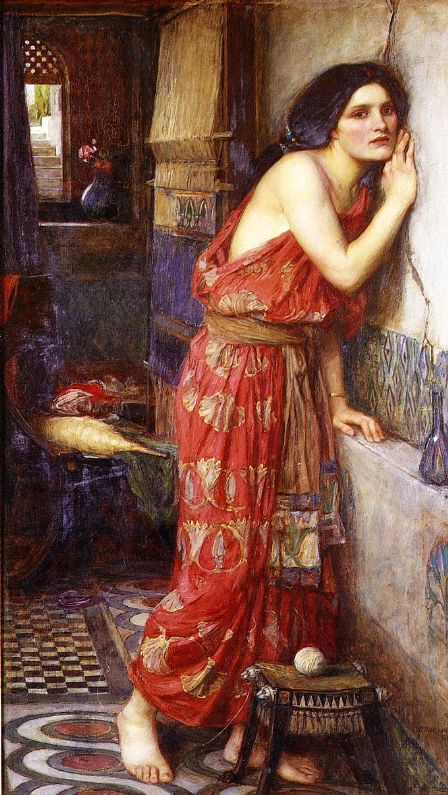
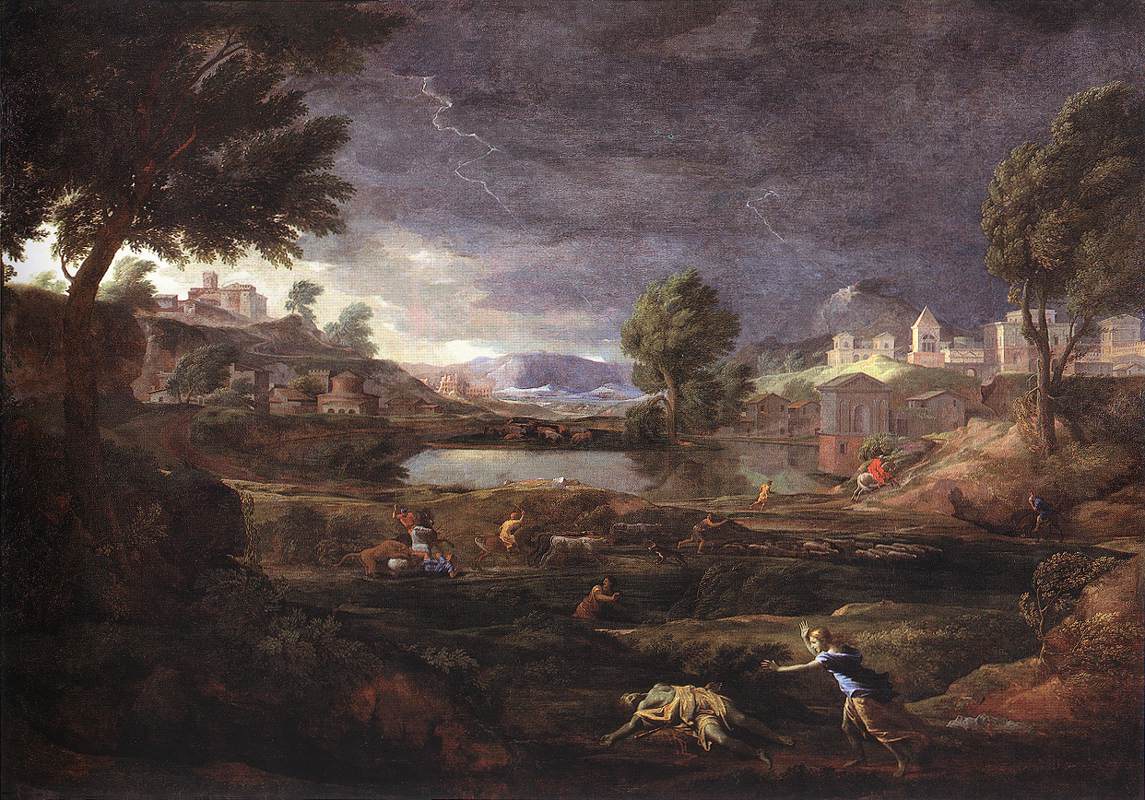
Thisbe, by John Waterhouse, 1909
Stormy Landscape with Pyramus and Thisbe, by Nicolas Poussin, 1651
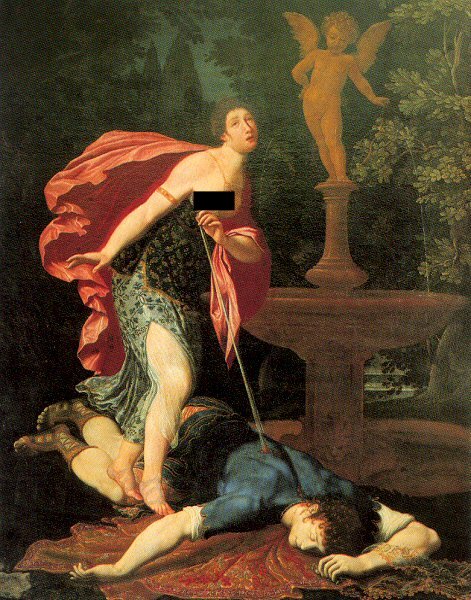
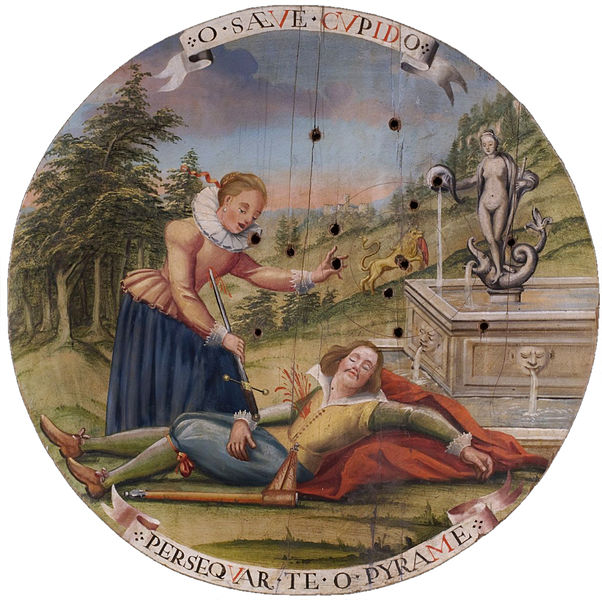
The Nymph Salmacis and Hermaphroditus, by Francois Joseph Navez, 1829
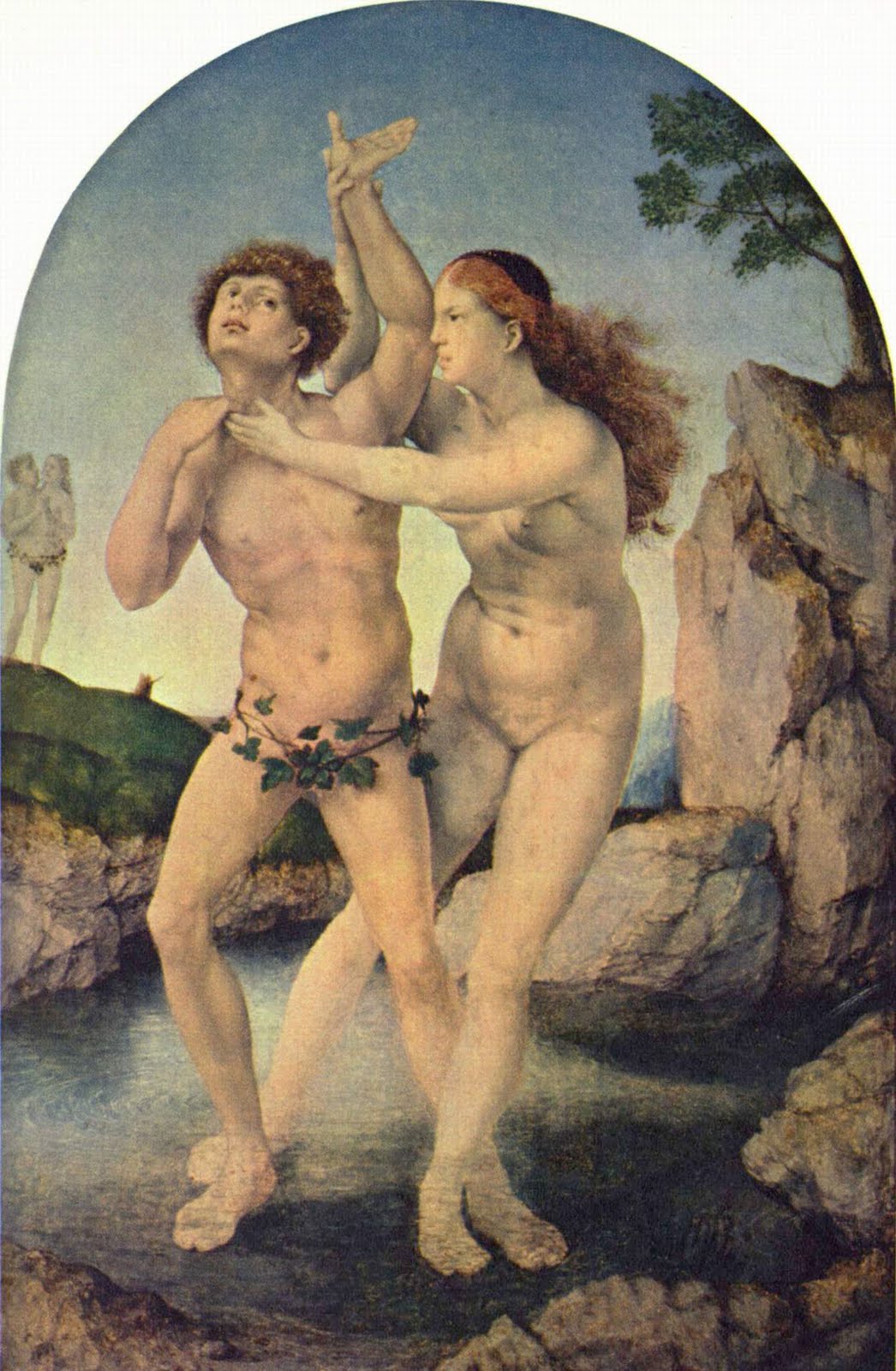
The Metamorphosis of the Nymph Salmacis and Hermaphroditus by Jan Gossaert, 1517
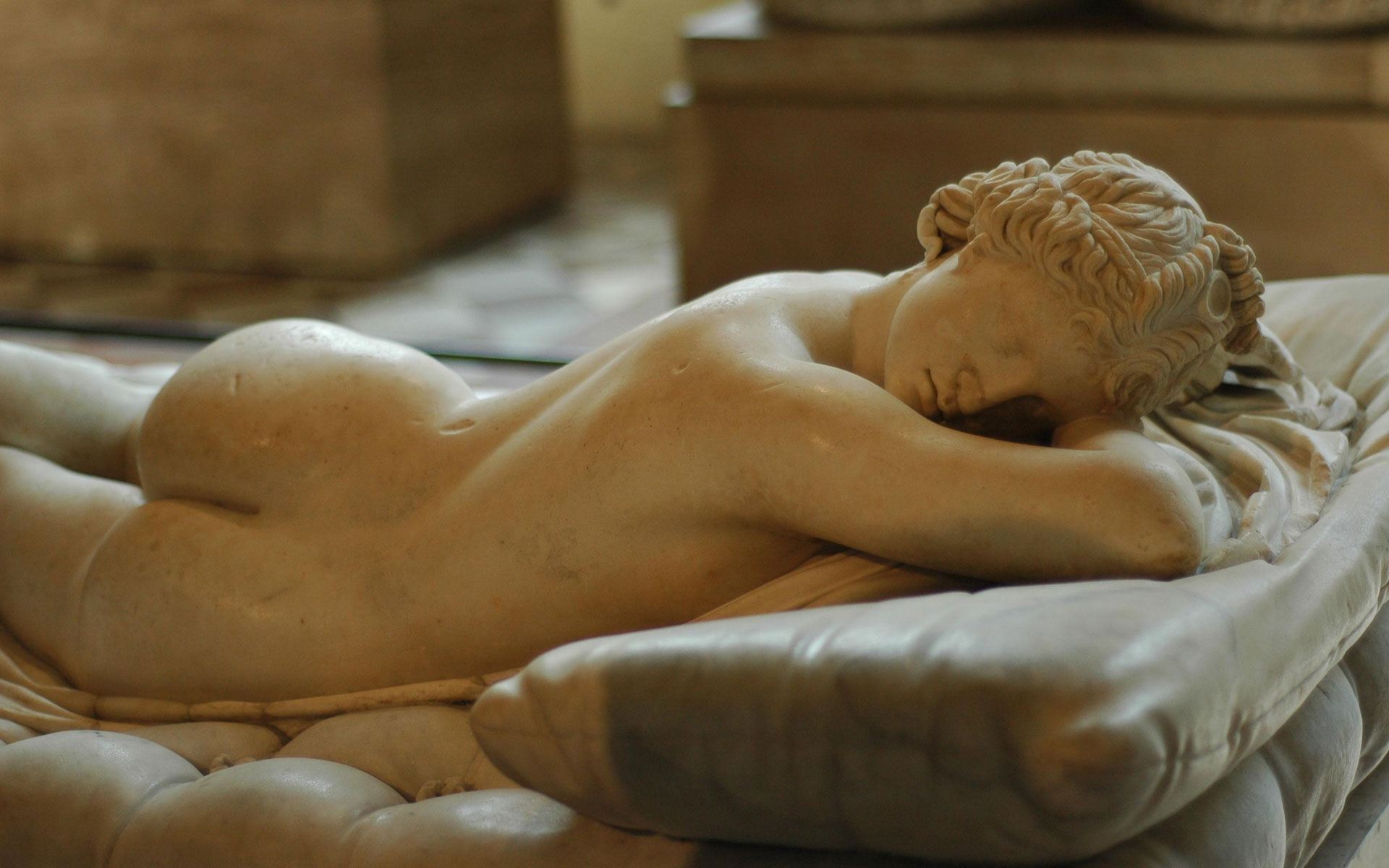
The Sleeping Borghese Hermaphroditus, 2nd century AD Roman copy of the Greek original of the 2nd century BC.
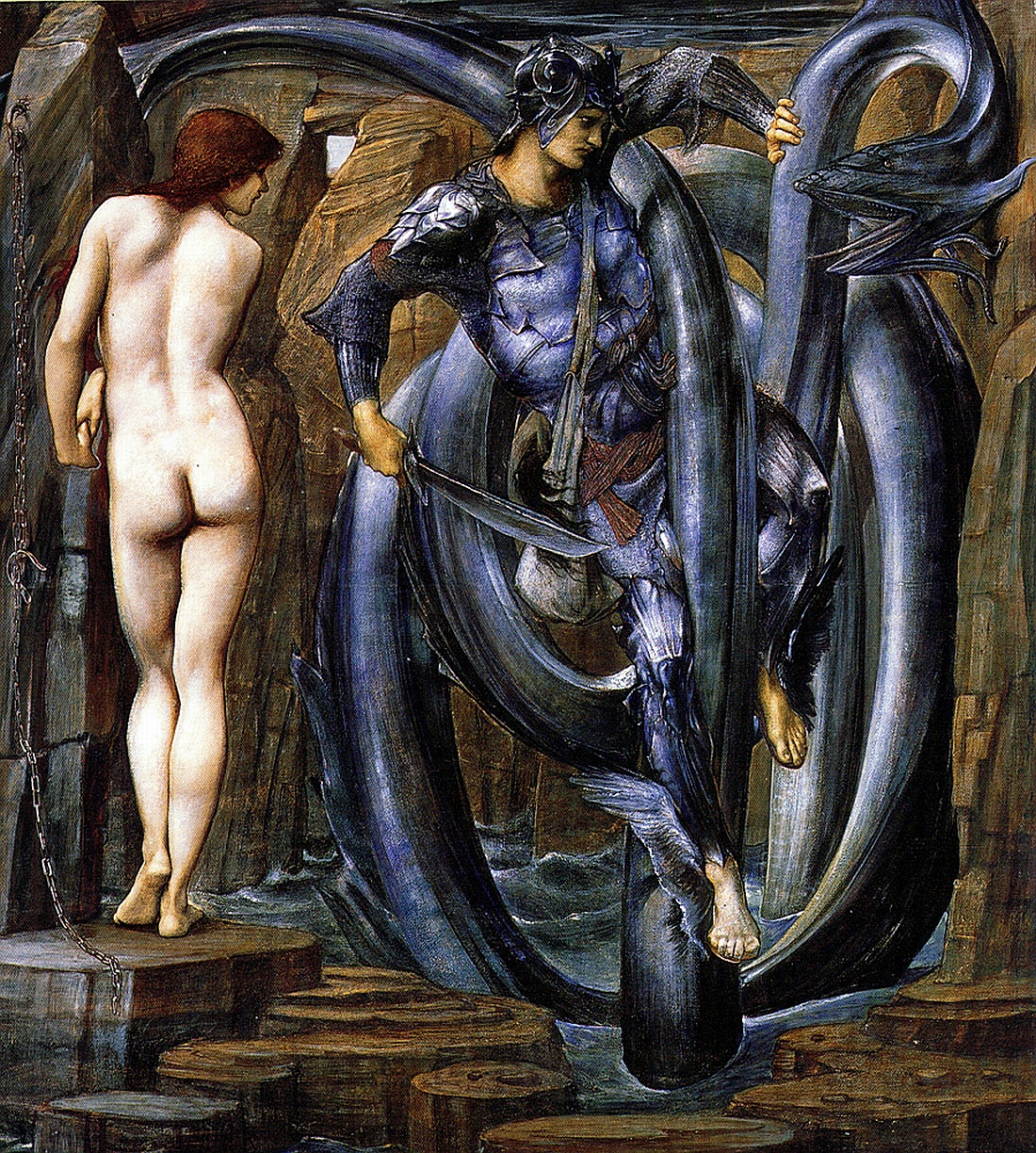
Perseus Cycle 7: The Doom Fulfilled by Edward Burne-Jones, 1885-88
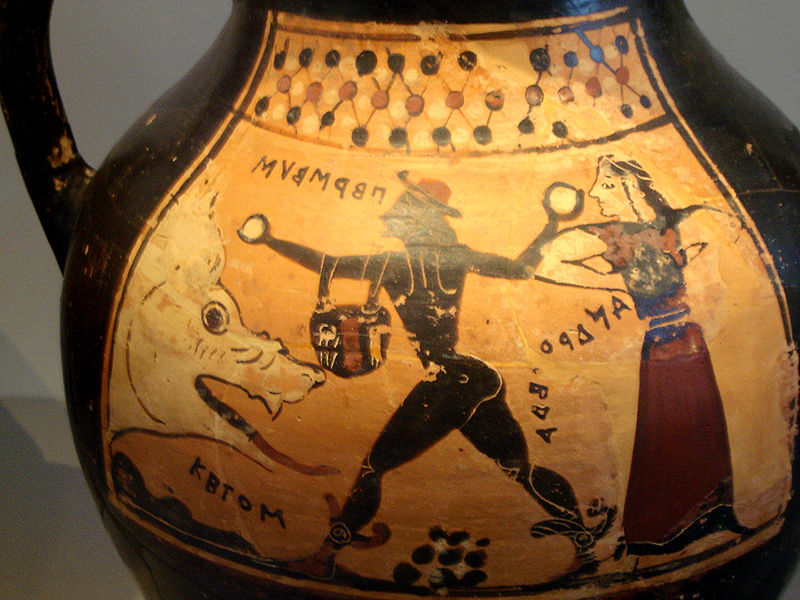
6th-century BC Corinthian vase depicting Andromeda, Perseus and Cetus
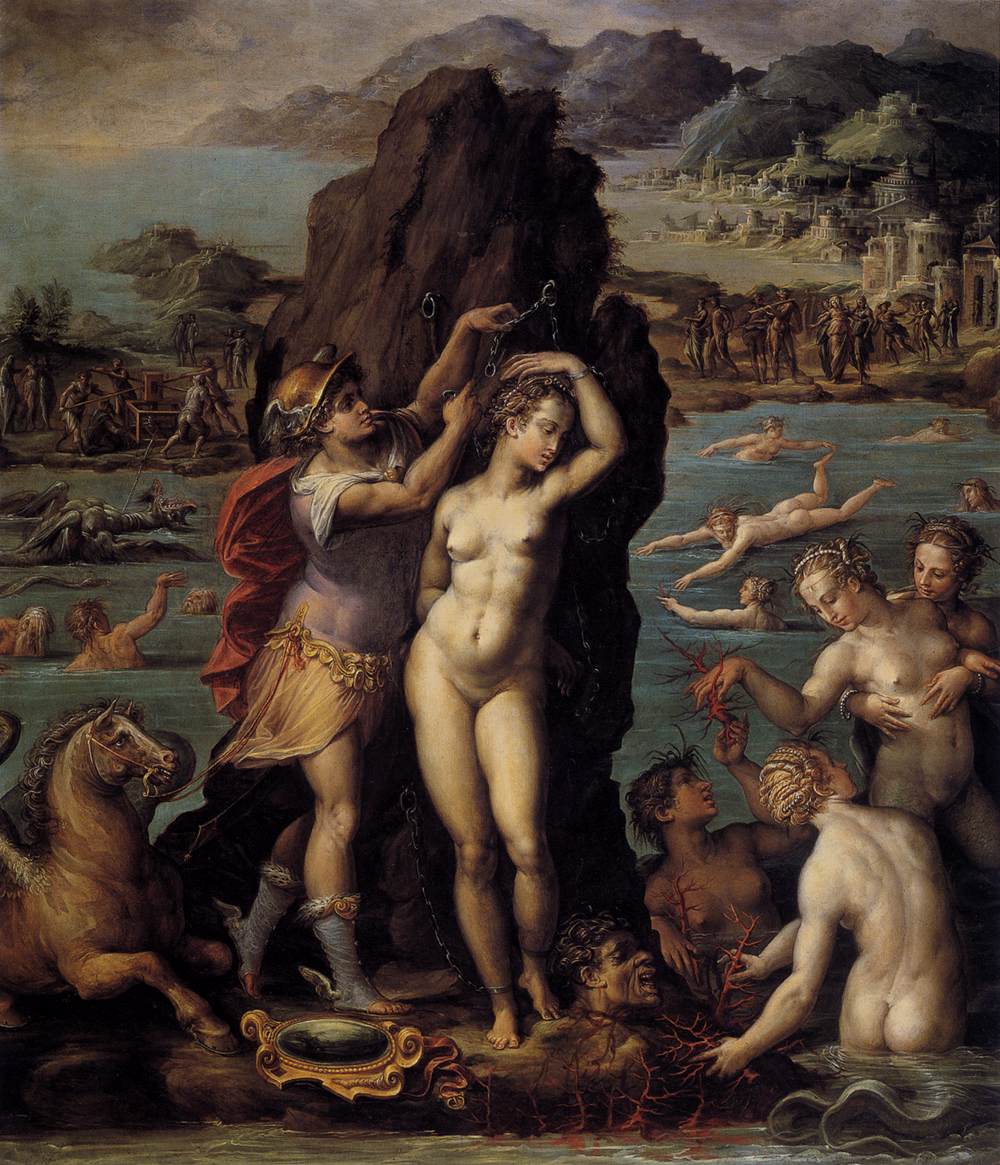
Perseus and Andromeda, by Giorgio Vasari, 1570
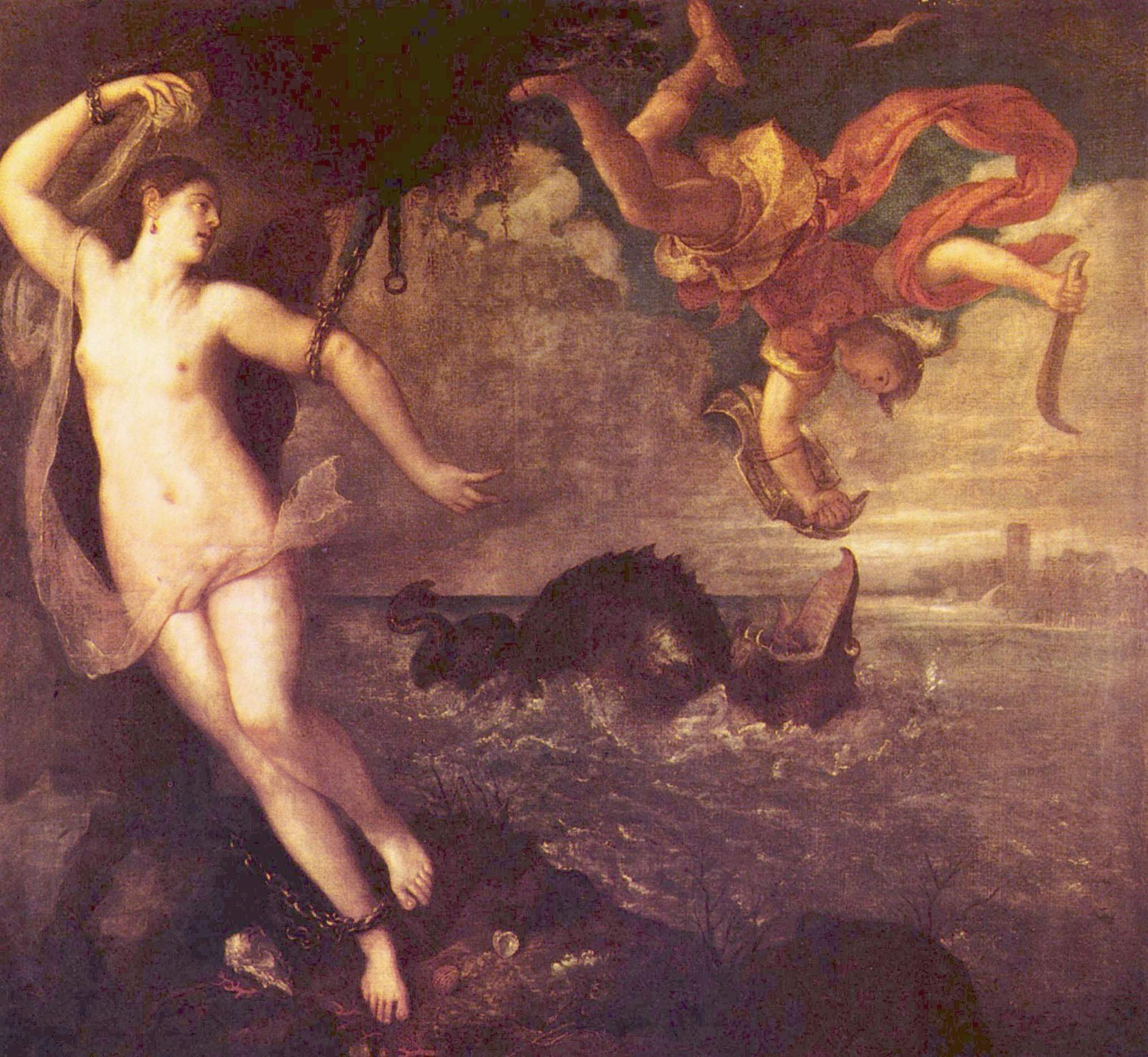
Perseus and Andromeda, by Titian, 1554-56
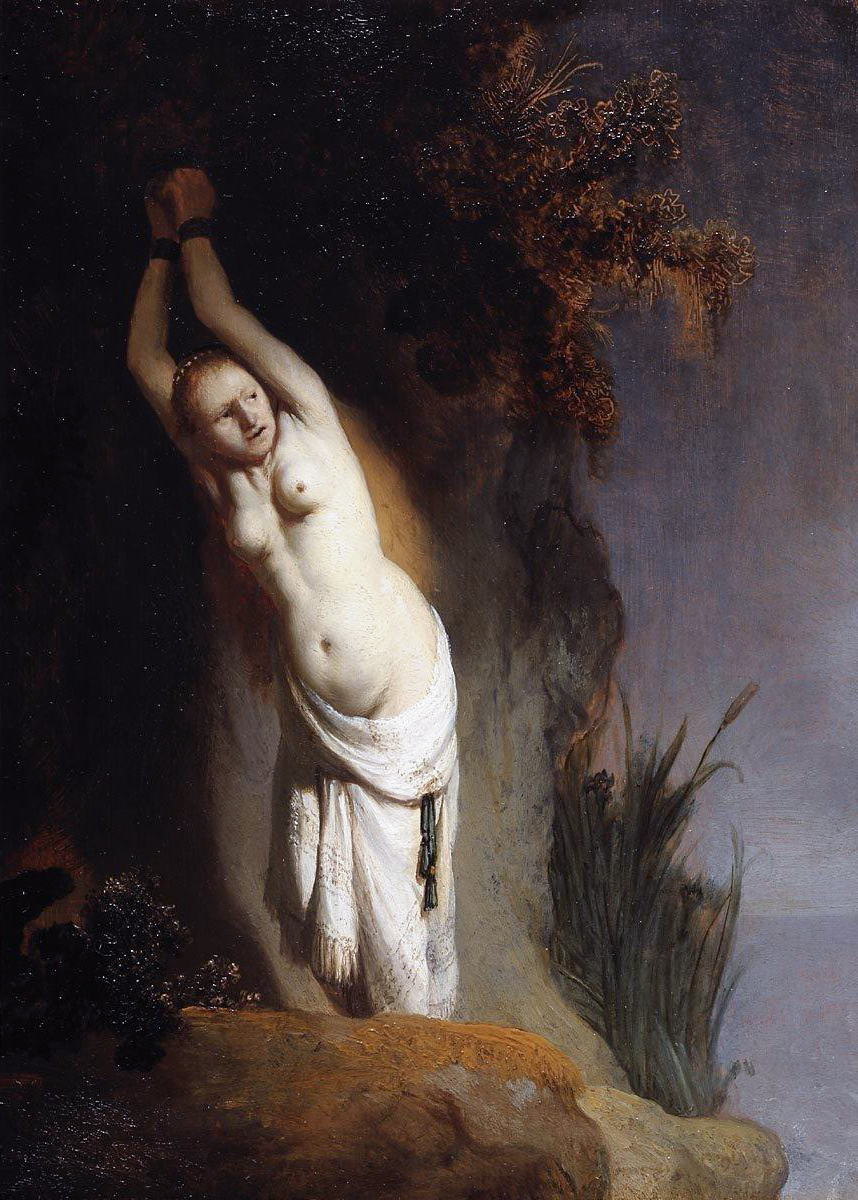
Andromeda, by Rembrandt, 1630
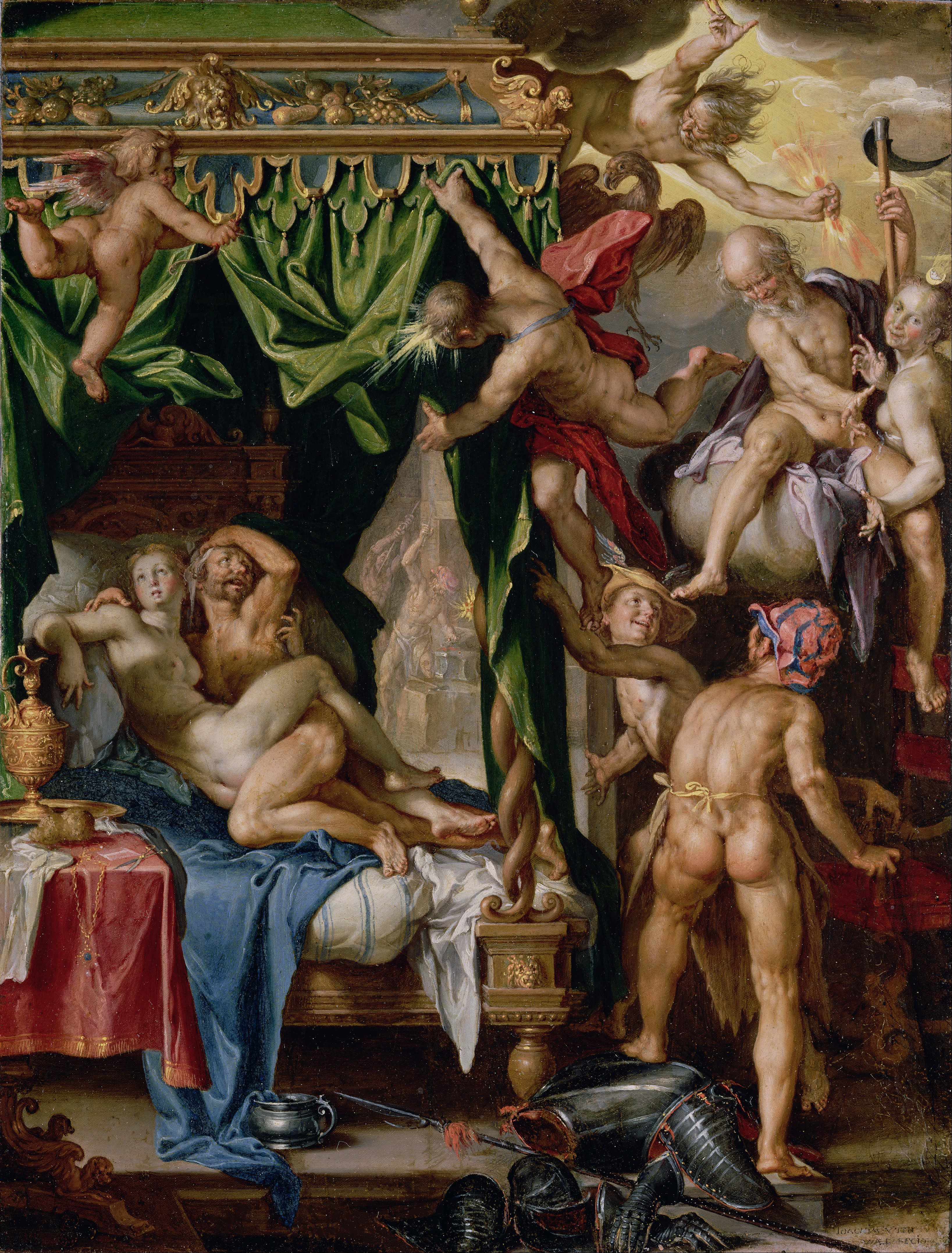
Mars and Venus Discovered by the Gods, by Joachim Wtewael, 1605
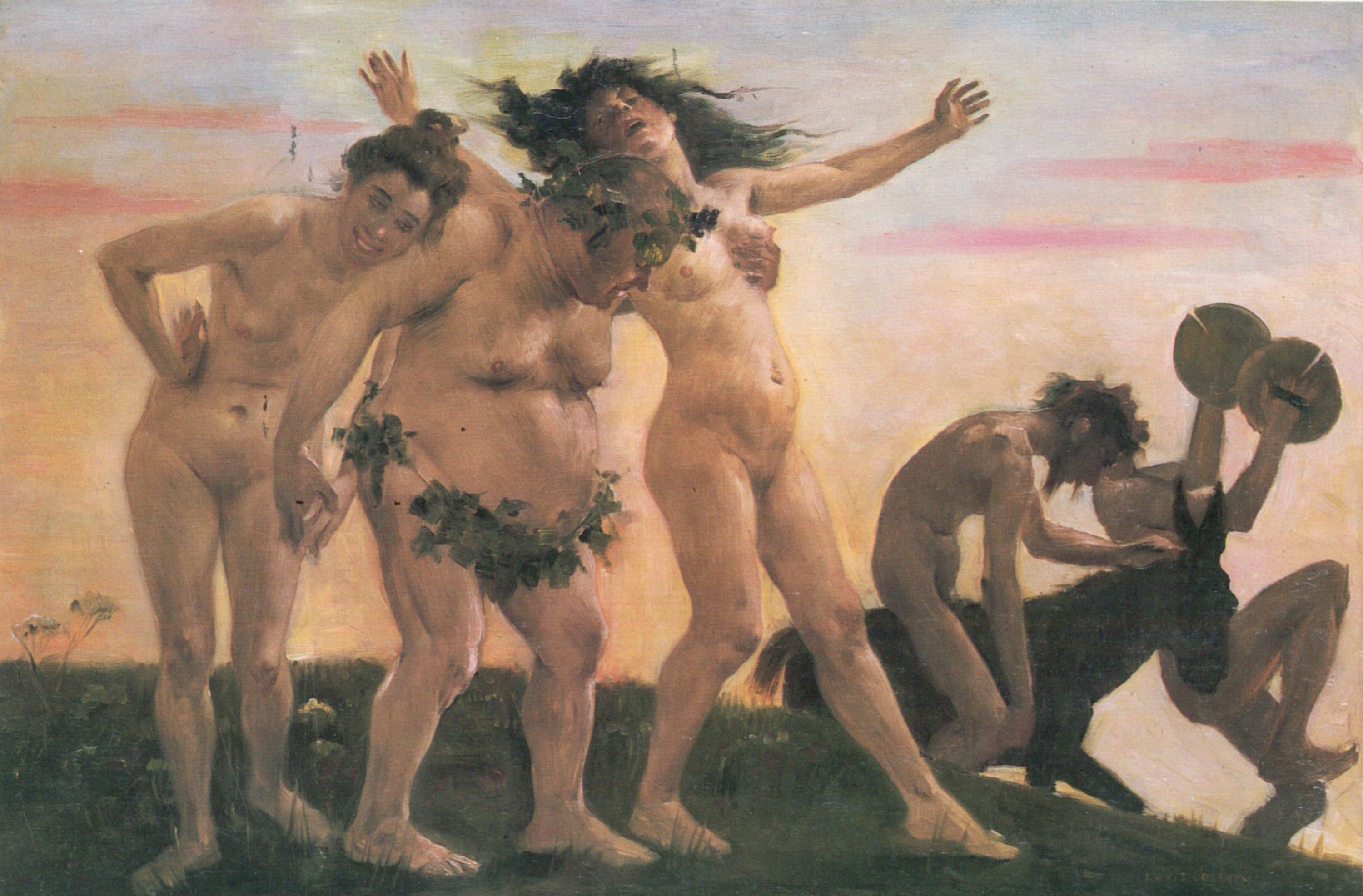
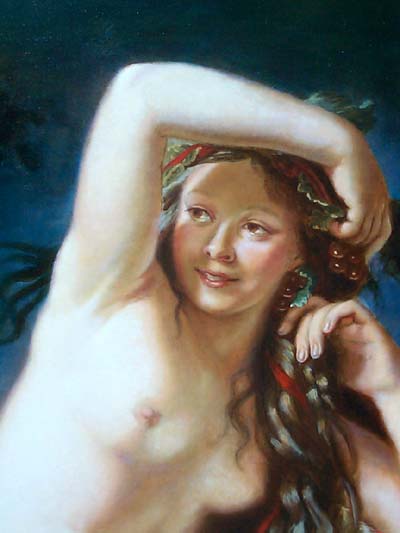
Bacchanalien by Lovis Corinth, 1898
Bacchantin by Martin Dace, 2003
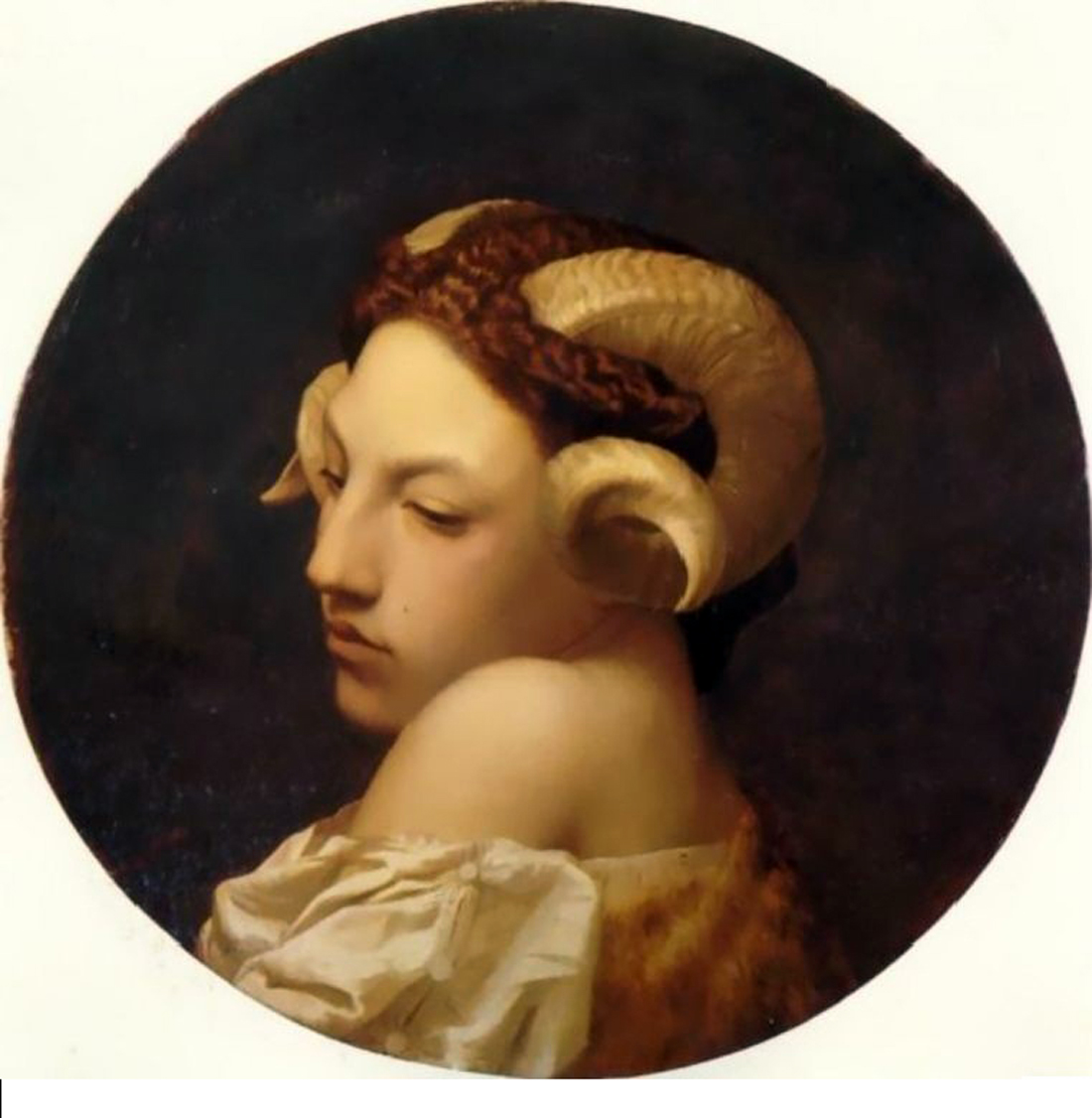
Bacchante by Jean-Leon Gerome, 1853
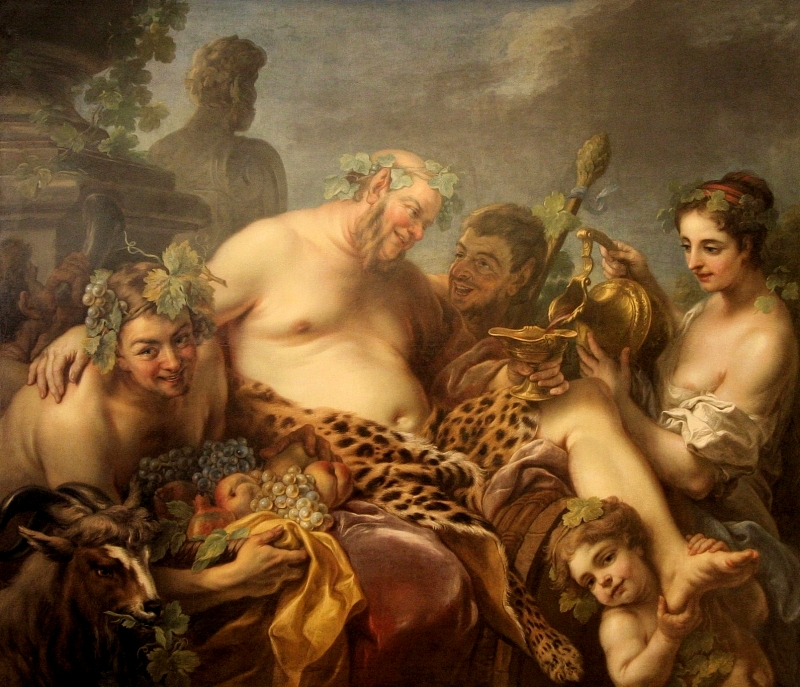
The Drunken Silenus by Carle Van Loo, 1747
Pyramus and Thisbe by Bemalte Schutzenscheibe, 1553
[1].jpg)
Mars and Venus by Sandro Botticelli, c. 1483
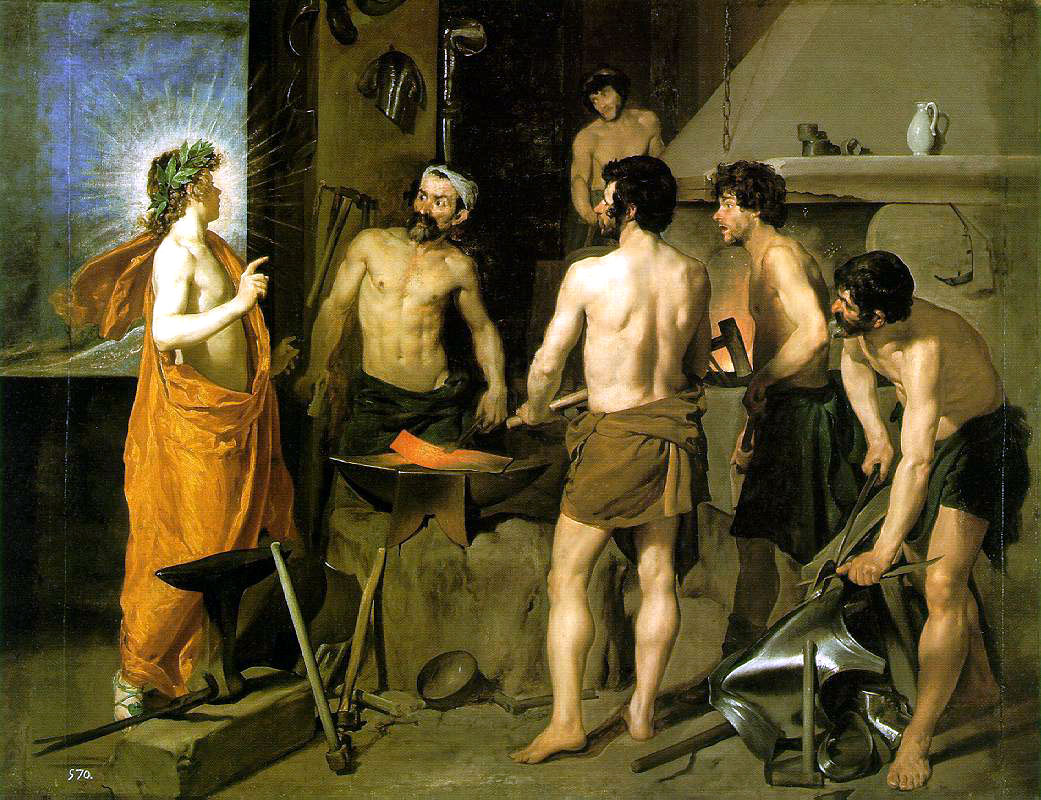
Apollo in the Forge of Vulcan by Diego Velazquez, 1630
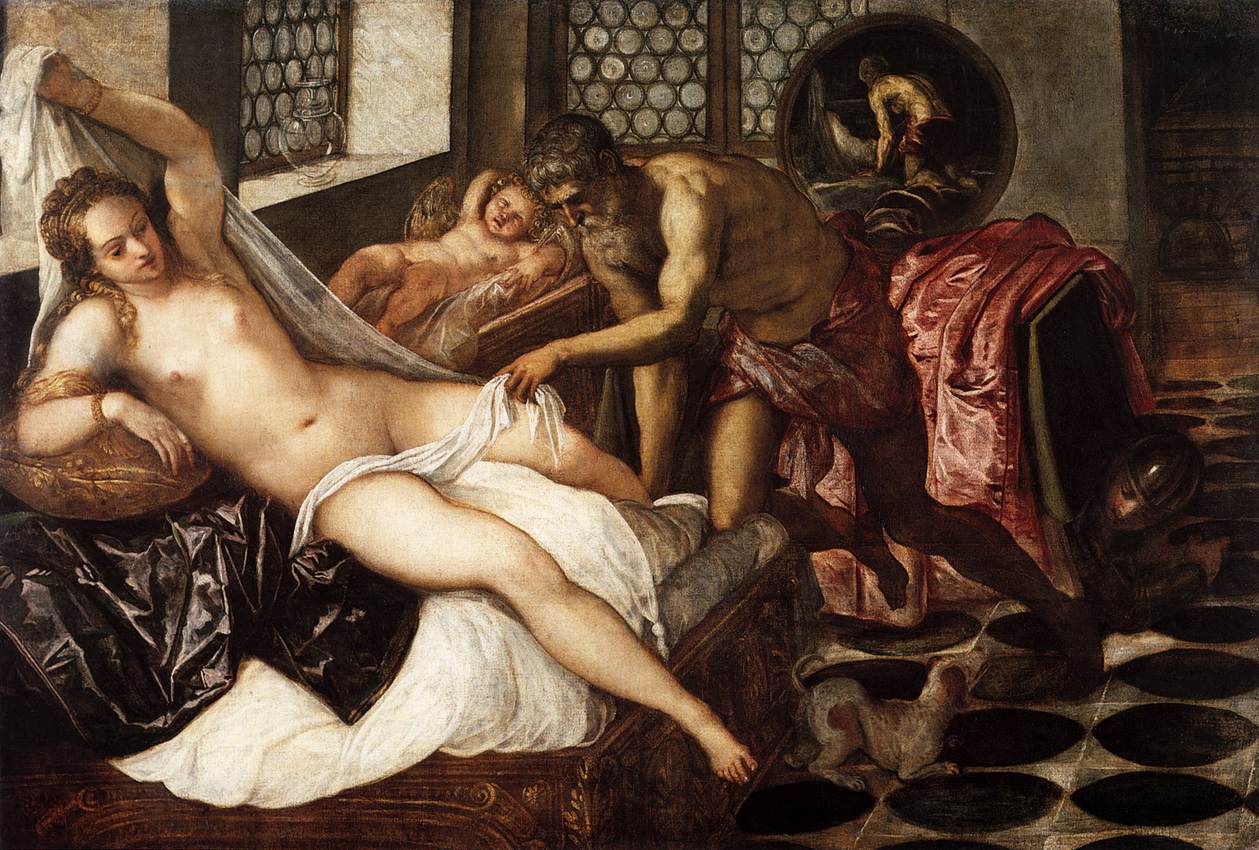
Venus, Mars, and Vulcan by Jacopo Tintoretto, c. 1551
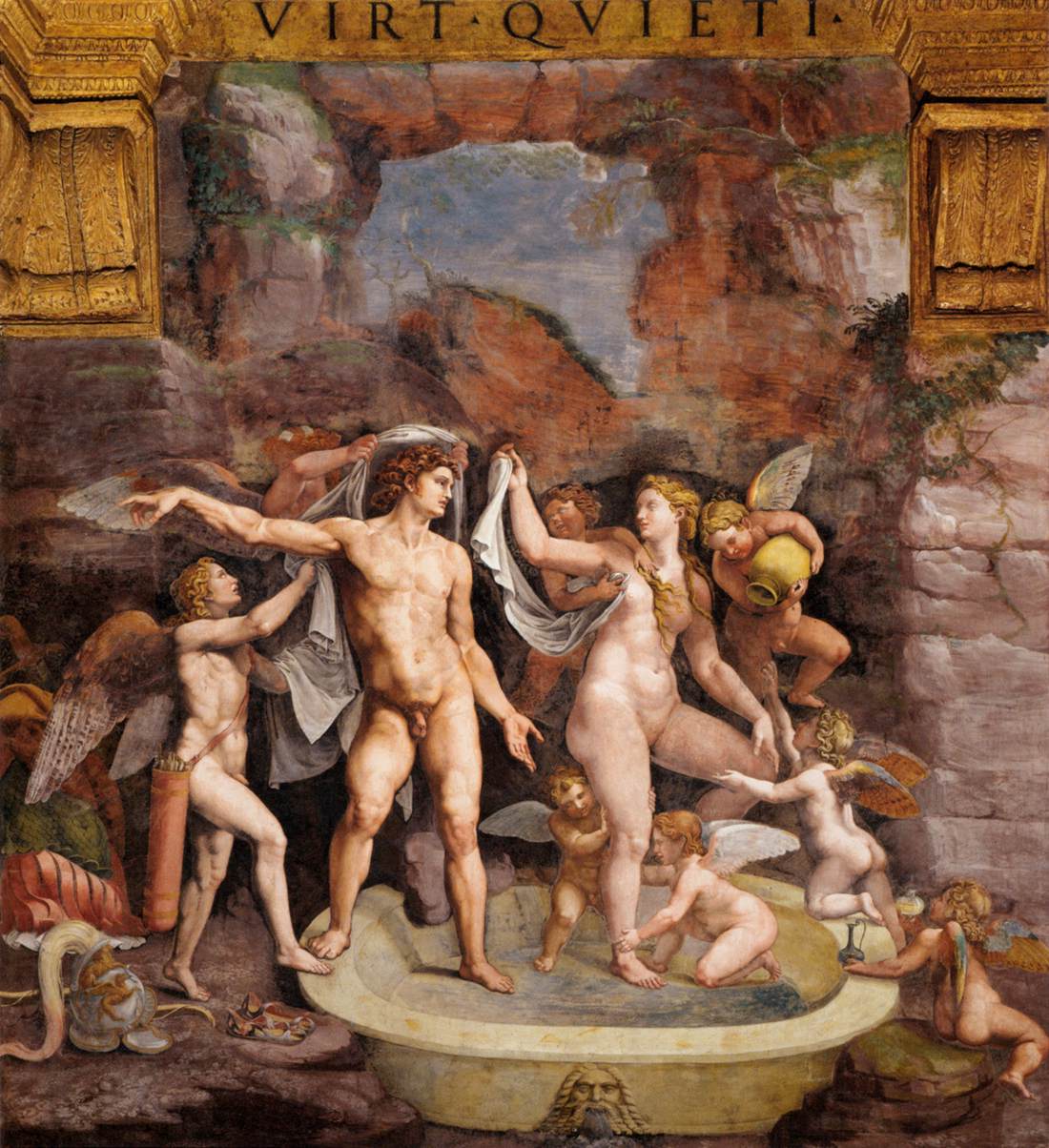
Venus and Mars Bathing by Giulio Romano, 1526-28. Fresco. Sala di Psiche, Palazzo del Te, Mantua
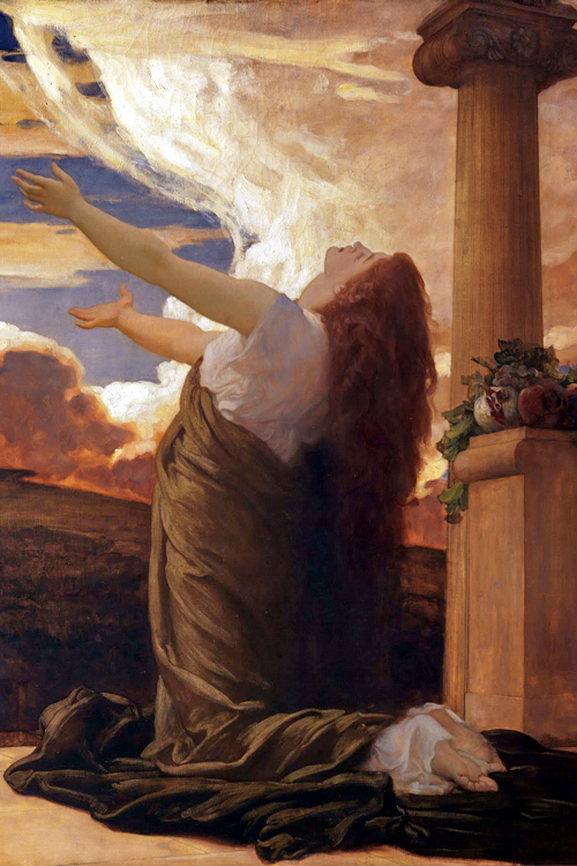
Clytie by Frederic Leighton, 1890-1892
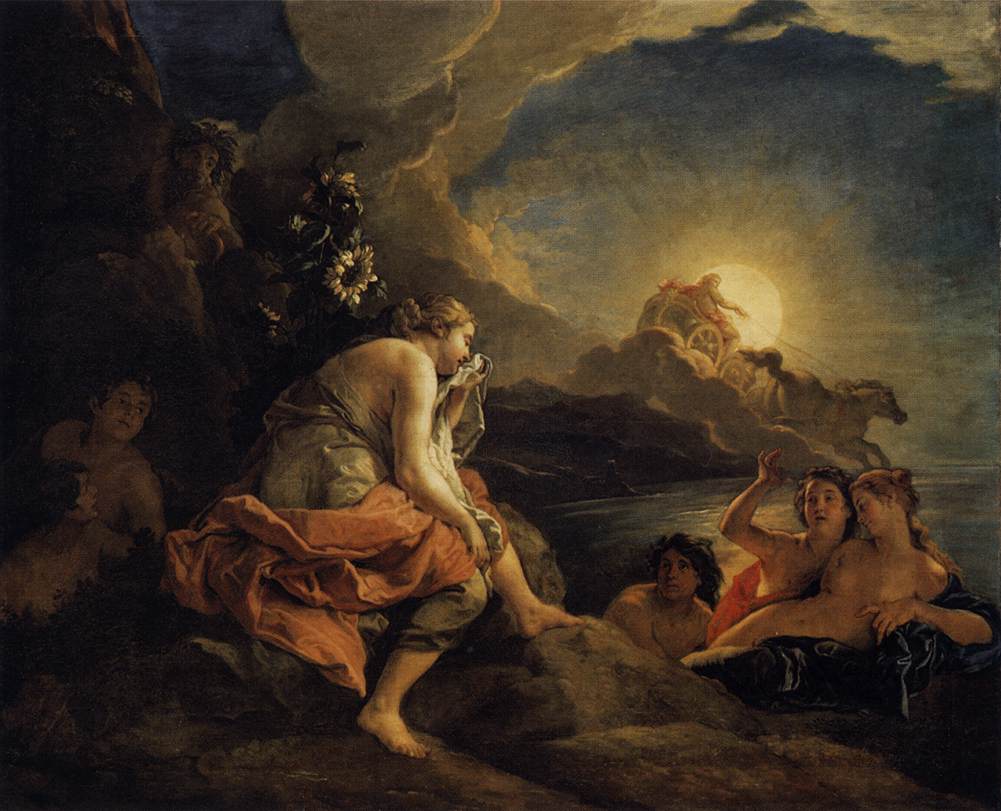
Clytie Transformed into a Sunflower by Charles de la Fosse, 1688
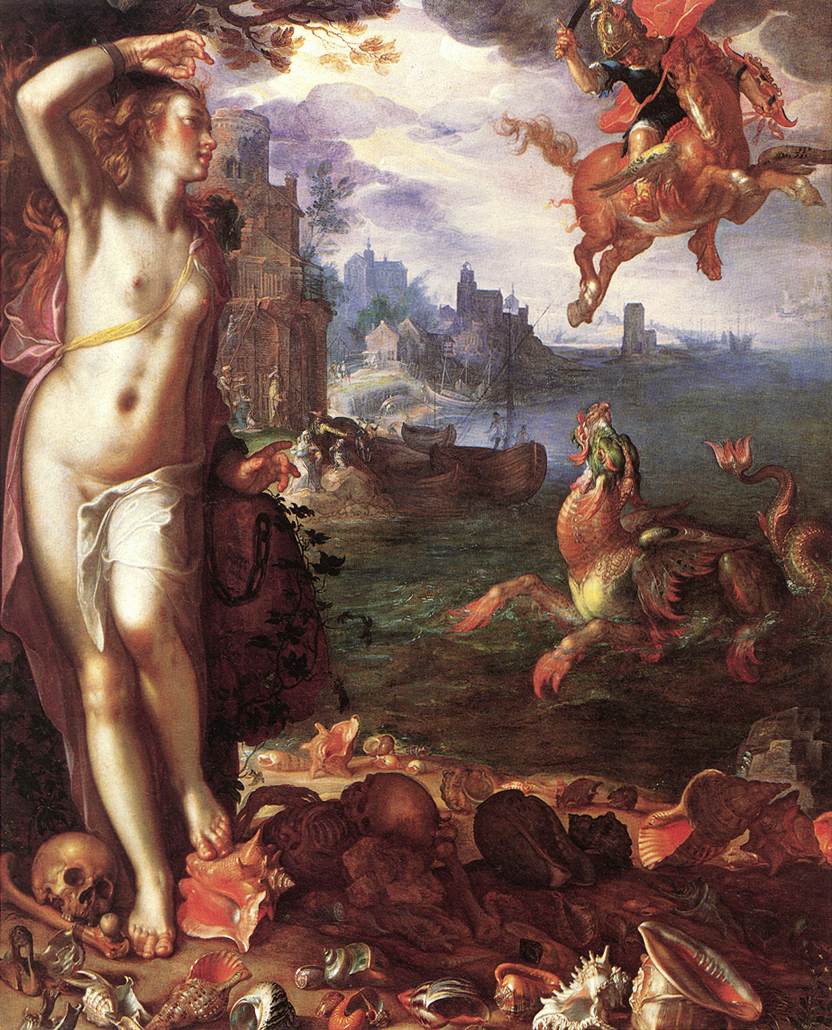
Perseus and Andromeda by Joachim Wtewael, 1611
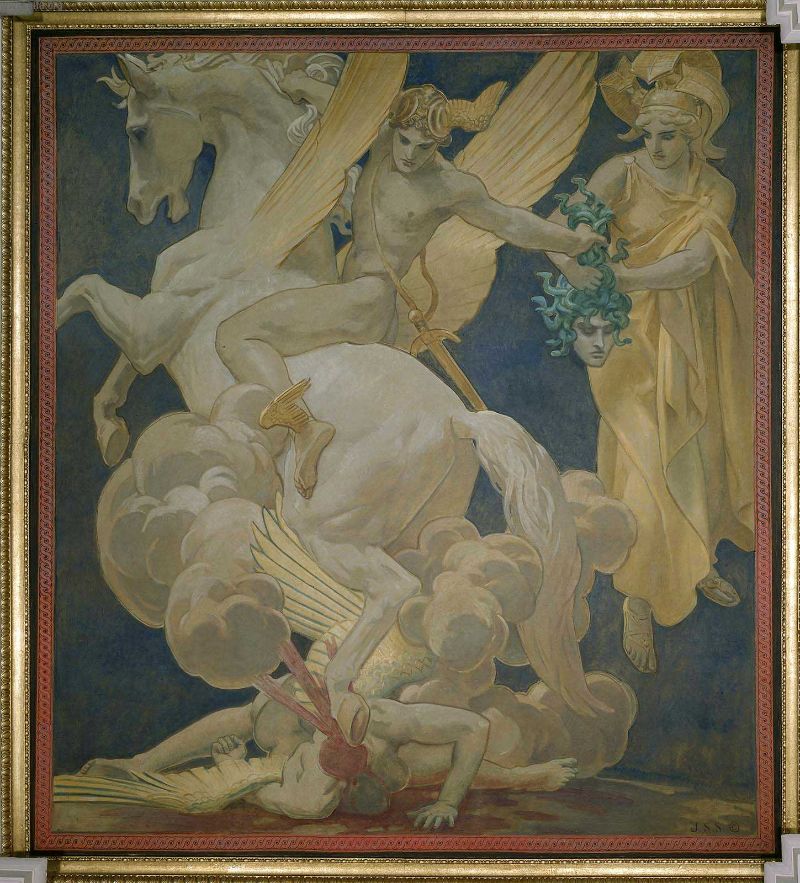
Perseus on Pegasus Slaying Medusa by John Singer Sargent, 1922-25
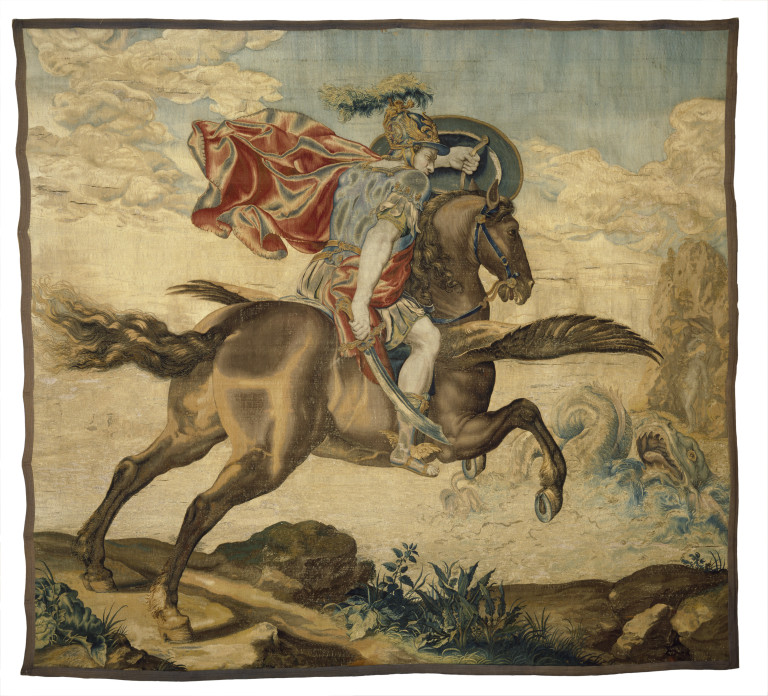
Perseus and Andromeda by Francis Cleyn, 1635-1637
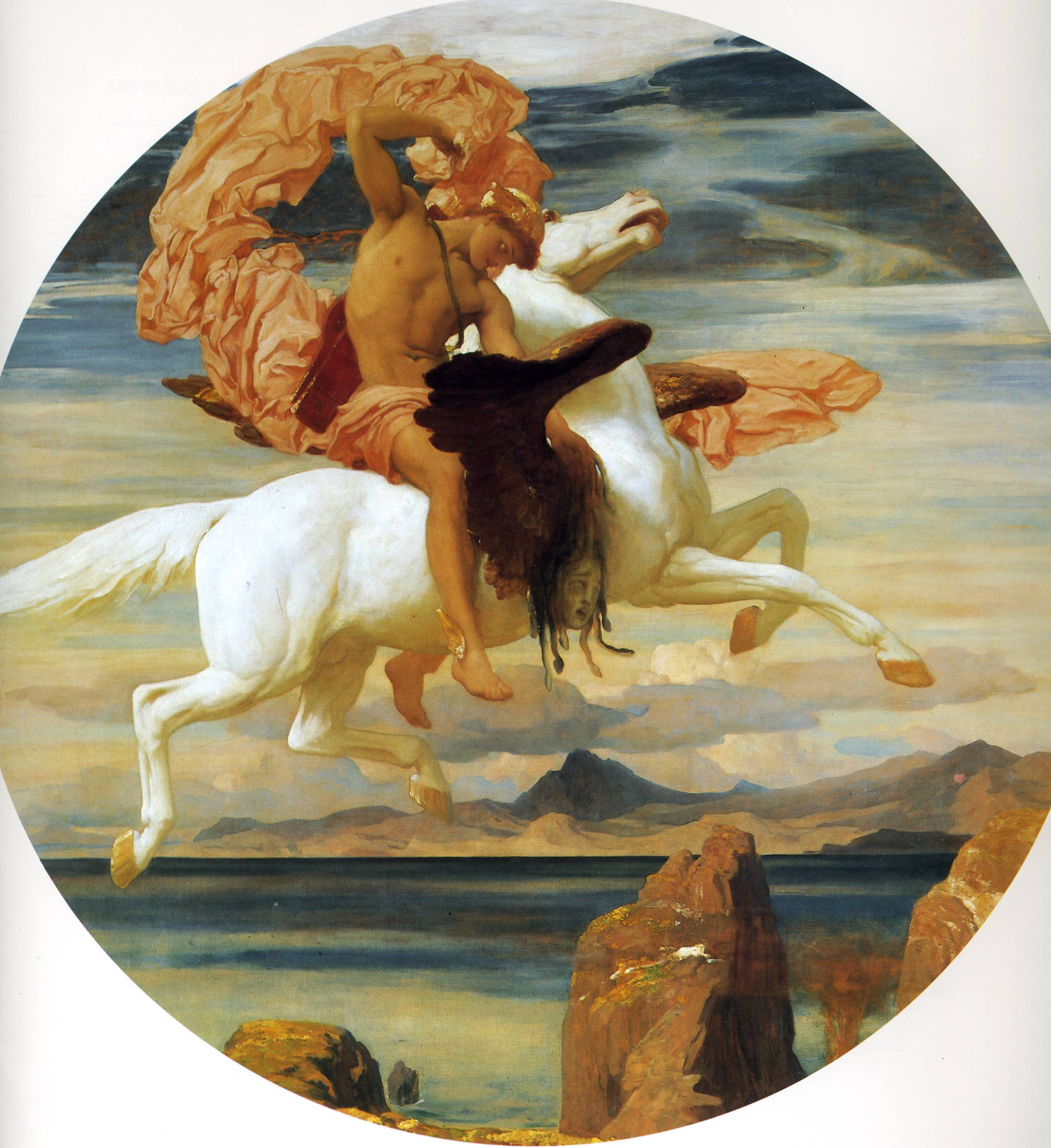

Perseus by Frederick Leighton, 1895-96
Medusa by Caravaggio, 1597
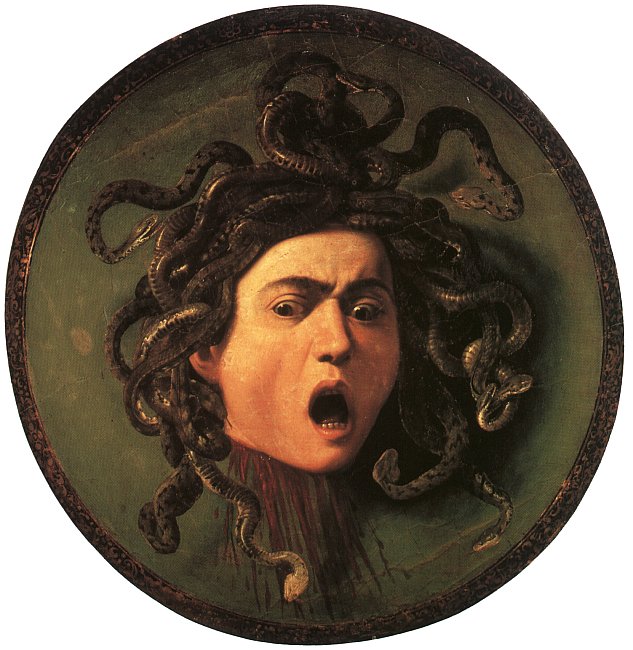
Pyramus and Thisbe, by Gregorio Pagani , Late 1550's